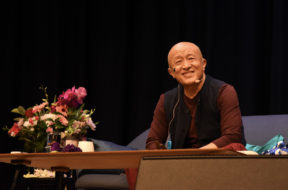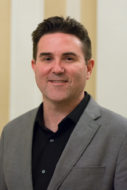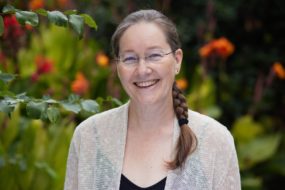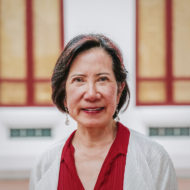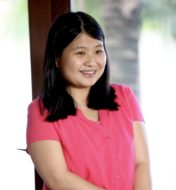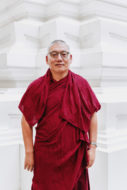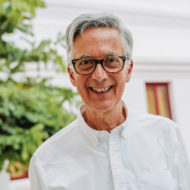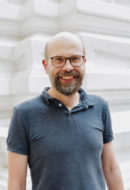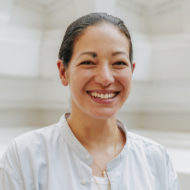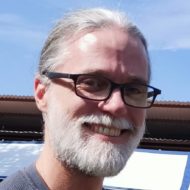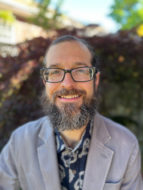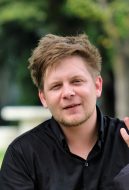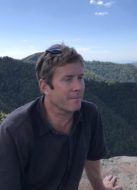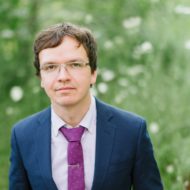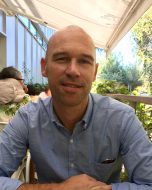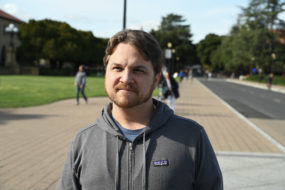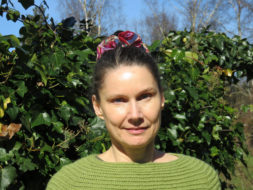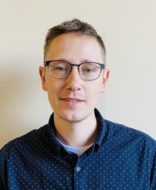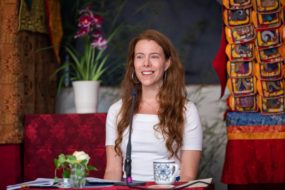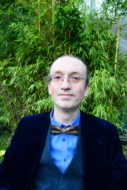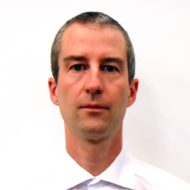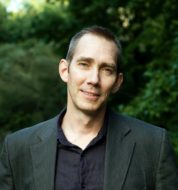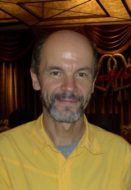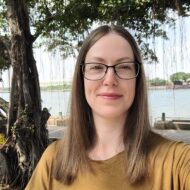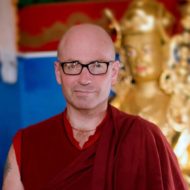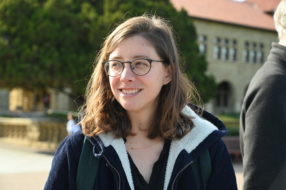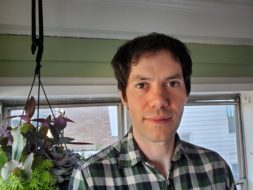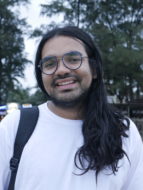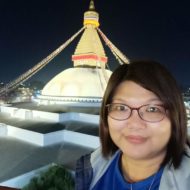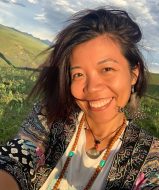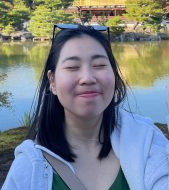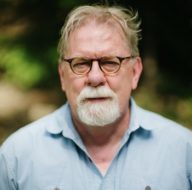About Us
What We Do
84000’s mission is to translate all of the Buddha’s words into modern languages, and provide open and free access to over 230,000 pages. In so doing, we are creating an essential new resource for primary-source scholarship, independent study, and personal practice.
But 84000’s vision does not stop there. We continually work to innovate the ways in which we present this collection, providing interactive tools and intertextual linkages to deepen the understanding of its wisdom for everyone, so that people of all ages and backgrounds, from all walks of life—academics, practitioners and the simply curious—can find a way to directly connect with the wisdom of the Buddha’s teachings.

Translate for Preservation
With a strong editorial research team, we award text-specific grants to translation teams around the world, working collaboratively to ensure accurate and credible translations of classical Tibetan Buddhist texts that will form a cohesive canon upon completion.
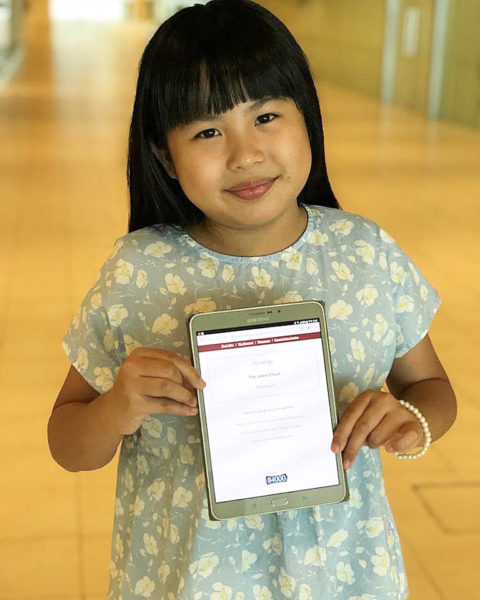
Engage through Open Access
We offer the world free access to this entire collection presented online and made intuitively navigable through the use of new publication technologies such as interactive glossaries, embedded bilingual source text views, advanced filters, and intertextual linkages.
In short, we are changing the landscape of Buddhist studies for academics and practitioners alike.
Who We Are
Our team is made up of academics, Dharma teachers, technology experts, translators, practitioners, and administrative staff working remotely from twenty-two cities around the world, and bound together by our core values.
Together we render the timeless texts of the Tibetan Buddhist canon into modern languages, and leverage technology to make them freely and globally available through scholarly research, specialized translation, technological innovation, and necessary administrative support.
We are proud to be a nonprofit, self-governed organization supported by honorary patrons that include His Majesty King Jigme Khesar Namgyel Wangchuck and HRH Princess Kesang Wangmo Wangchuck of Bhutan. We are guided by our executive committee and our board of directors.
84000 Team Biography
Dzongsar Khyentse Rinpoche
Board Member, Founding Chair
Dzongsar Khyentse Rinpoche is a student of important Tibetan Buddhist lamas including Kyabje Dilgo Khyentse Rinpoche, Kyabje Sakya Trizin, Kyabje Dudjom Rinpoche, and the16th Karmapa. He is the head of the renowned Dzongsar Monastery and Dzongsar College. Rinpoche is currently responsible for the care and education of over 2,000 monks distributed between six monasteries and institutes in Asia.
In addition, Rinpoche oversees Siddhartha’s Intent and contemporary teaching and practice centers established in several continents as well as the non-profit organizations Khyentse Foundation, 84000, and Lotus Outreach. Also, Rinpoche has authored several books on following the Buddhist path in the contemporary world.
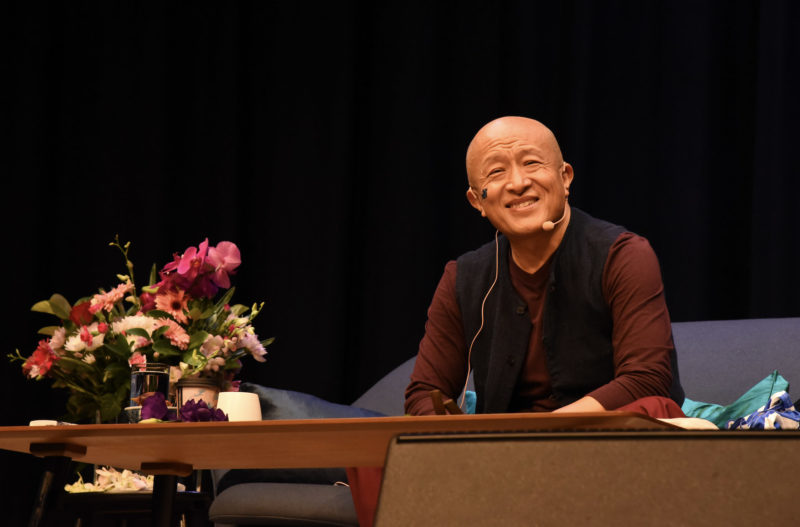
84000 Team Biography
Daniel Aitken
Board Member
Daniel is CEO/Publisher of Wisdom Publications and is an experienced business executive with decades of insights gathered from corporate and consumer marketing executive roles working for multinationals such as Canon, and large financial firms such as Westpac.
While pursuing his business career, Daniel continued to foster his life long interest in Tibetan Buddhism, the Tibetan language, and its literature. This has taken him across Australia, America, India, Nepal, and Tibet to pursue a deeper understanding of Buddhist theory and practice with masters from the living tradition. Daniel also has a PhD in Buddhist Philosophy.
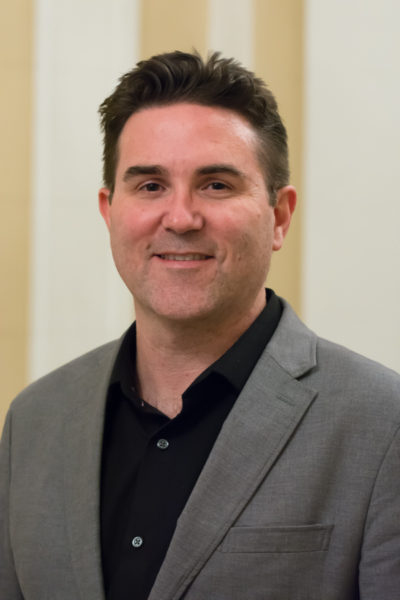
84000 Team Biography
Erik Pema Kunsang
Board Member
Erik Pema Kunsang is a dharma teacher and translator of tantric texts and pith instructions of the Kagyu and Nyingma lineages. Early in life, a deep curiosity about the nature of reality led him to connect with the tradition of Buddha Shakyamuni, and of Padmasambhava, which he has studied, practiced and served ever since. Under the guidance of his main teachers, the dzogchen master Tulku Urgyen Rinpoche and Chökyi Nyima Rinpoche, Erik has translated numerous dharma texts in simple language. He is the co-founder of Rangjung Yeshe Publications, Rangjung Yeshe Institute (Nepal), and several Gomde retreat centers across Europe. Appointed to teach the dharma by Chökyi Nyima Rinpoche, he now guides retreats on simplicity, naturalness, love, and insight.
In 2016 Erik founded Bodhi Training in Denmark, a two-year education initiative that explores all levels of insight into the Buddha’s teachings, giving participants an opportunity to connect with the dharma in a gradual, experiential, and interactive way.
These days he enjoys a quiet life with his wife Tara, singing mantras and buddhist songs, and doing no-dig gardening. It brings him deep happiness to make the original poetry of dharma possible to chant in English, especially the sadhana texts of Padmasambhava.

84000 Team Biography
Sara McClintock, Ph.D
Board Member
Sara L. McClintock, PhD, is Associate Professor of Religion at Emory University in Atlanta where she teaches courses in Indian and Tibetan Buddhist philosophy and narrative traditions. Her published work includes a monograph, Omniscience and the Rhetoric of Reason (2010), and a co-authored volume with Georges Dreyfus, The Svātantrika-Prāsaṅgika Distinction (2003).
Her doctorate is from Harvard University (2002), and she has conducted research at the Central University for Tibetan Studies in Sarnath, India; the University of Lausanne, Switzerland; and the Institute for the Cultural and Intellectual History of Asia at the Austrian Academy of Science in Vienna, Austria.
She is a member of the Board of Directors of the International Association of Buddhist Studies, and a Research Fellow at the Mind and Life Institute. She is a recent (2019) recipient of a Robert H. N. Ho foundation Buddhist Studies Research Fellowship for work she is conducting on a new book project entitled Transactional Reality, Transactional Truth.
Her dharma practice includes instruction from a wide range of teachers in diverse lineages. Sara joined the Board of 84000 in 2011.
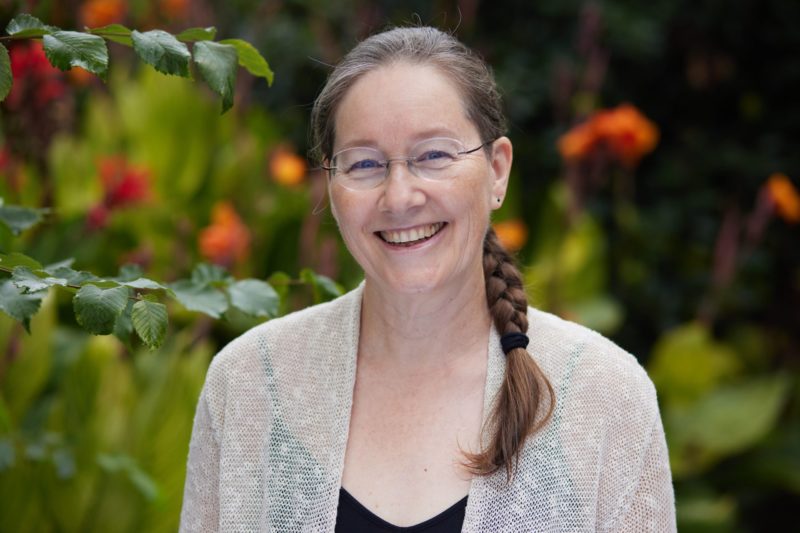
84000 Team Biography
Ivy Ang
Board Member & Executive Committee Member
Ivy Ang has over 30 years of extensive experience in international business and organizational development. Her professional background includes VP Human Resources roles in the fields of high technology, biotechnology, branding, consulting and finance. She held VP HR positions for global industry leaders such as Genentech, AIG, Madge Networks and Landor Associates. She also has extensive experience consulting with for-profit and non-profit organizations. Ivy is the founder of Visionlinc, a consulting agency dedicated to linking vision, people and strategies. She is a strategic planner and executive coach to CEOs and their teams.
Her areas of expertise include strategic visioning and planning, leadership and management, executive coaching and team building with emphasis on creating high performing teams and innovative cultures to achieve organizational mission.
At the request of Dzongsar Khyentse Rinpoche, Ivy facilitated the 5-day Translating the Words of the Buddha conference in March, 2009 in Bir, India. The conference culminated in the birth of the historic 84000 project, with the 100-year goal of translating the words of the Buddha into modern languages, making it accessible to all: “Working with Rinpoche’s mandala has been the single most inspirational and fulfilling experience in my life”
Nonprofit organizations include: Khyentse Foundation, 84000, The Gross National Happiness Project in Bhutan, BDRC, MBA project, Gap coaching and other community projects.
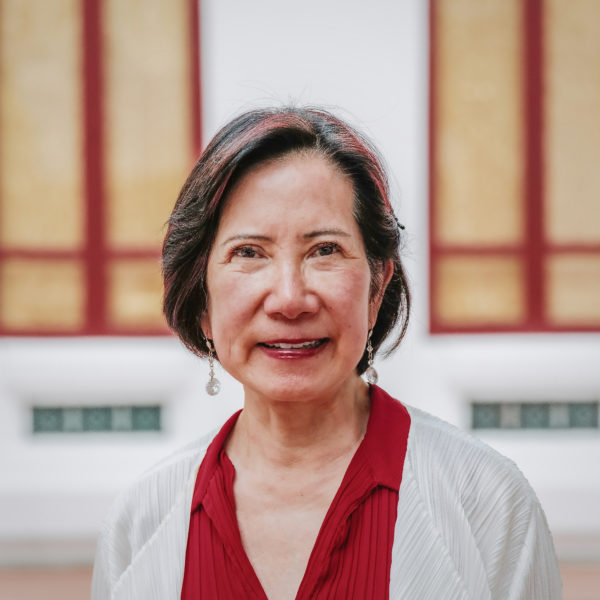
84000 Team Biography
Huang Jing Rui
Executive Director
Huang Jing Rui has been the appointed Executive Director since 84000 began as the Buddhist Literary Heritage Project in 2009. Prior to that, Jing Rui worked in the non-profit sector as a social worker in a community-based family service center in Singapore.
In part to seek alternative answers to the ills of urban living and in part to pursue her childhood dreams, she gave up her career to volunteer in a remote village named Bir in the Indian Himalayas. It was in these hills that she, most unexpectedly, stumbled upon the opportunity to take part in 84000—a hundred-year undertaking that will last beyond her lifetime.
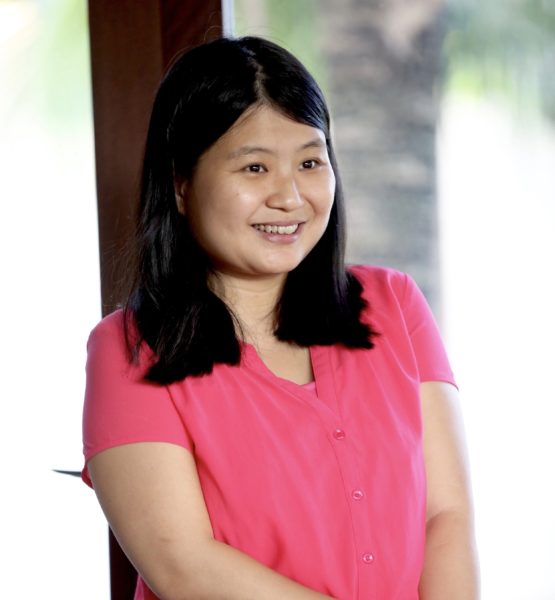
84000 Team Biography
Khenpo Choying Dorjee
Working Committee Member
Khenpo Choying Dorjee is assisted in this role by Sonam Jamtsho.
Khenpo Choying Dorjee is a Tibetan Buddhist scholar known for his fresh and engaging way of presenting Buddhist philosophy. He was a devoted student of the late Khen Rinpoche Kunga Wangchuk. Khenpo Choying Dorjee joined the Dzongsar Khyentse Chokyi Lodro Institute (DKCLI) in 1992, receiving his Khenpo title in 2002, and his Khenpo degree (the monastic education equivalent to a PhD in Buddhism) in 2004. He then spent many years in various teaching and leadership roles at DKCLI, and in 2010, was appointed as a teacher to Sakya Dungsay Avikrita Rinpoche.
In 2011 Khenpo was sent to UC Berkeley (USA) as a visiting scholar by Dzongsar Khyentse Rinpoche, and was also appointed by Rinpoche as the head principal of DCKLI for the 2013-2016 term. Since then Khenpo has been directed by Khyentse Rinpoche to give teachings and to lead practices around Asia, Australia, Europe, and the Americas. His rich knowledge and deep understanding of Buddhism have benefited the many students who have attended his teachings.
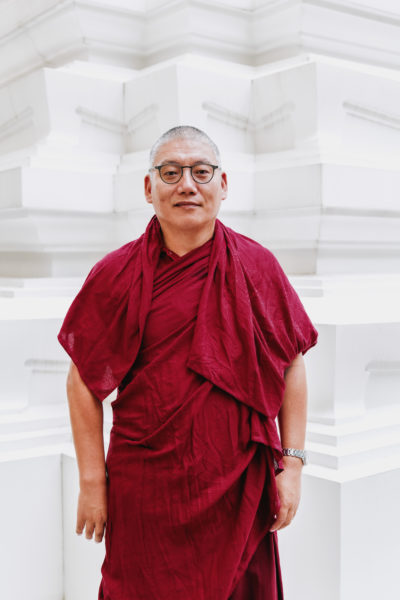
84000 Team Biography
Ivy Ang
Board Member & Executive Committee Member
Ivy Ang has over 30 years of extensive experience in international business and organizational development. Her professional background includes VP Human Resources roles in the fields of high technology, biotechnology, branding, consulting and finance. She held VP HR positions for global industry leaders such as Genentech, AIG, Madge Networks and Landor Associates. She also has extensive experience consulting with for-profit and non-profit organizations. Ivy is the founder of Visionlinc, a consulting agency dedicated to linking vision, people and strategies. She is a strategic planner and executive coach to CEOs and their teams.
Her areas of expertise include strategic visioning and planning, leadership and management, executive coaching and team building with emphasis on creating high performing teams and innovative cultures to achieve organizational mission.
At the request of Dzongsar Khyentse Rinpoche, Ivy facilitated the 5-day Translating the Words of the Buddha conference in March, 2009 in Bir, India. The conference culminated in the birth of the historic 84000 project, with the 100-year goal of translating the words of the Buddha into modern languages, making it accessible to all: “Working with Rinpoche’s mandala has been the single most inspirational and fulfilling experience in my life”
Nonprofit organizations include: Khyentse Foundation, 84000, The Gross National Happiness Project in Bhutan, BDRC, MBA project, Gap coaching and other community projects.

84000 Team Biography
Huang Jing Rui
Executive Director
Huang Jing Rui has been the appointed Executive Director since 84000 began as the Buddhist Literary Heritage Project in 2009. Prior to that, Jing Rui worked in the non-profit sector as a social worker in a community-based family service center in Singapore.
In part to seek alternative answers to the ills of urban living and in part to pursue her childhood dreams, she gave up her career to volunteer in a remote village named Bir in the Indian Himalayas. It was in these hills that she, most unexpectedly, stumbled upon the opportunity to take part in 84000—a hundred-year undertaking that will last beyond her lifetime.

84000 Team Biography
Dr. John Canti
Senior Editor
John Canti studied medicine and anthropology at Cambridge University (UK) and qualified as a doctor in 1975. While still a medical student he met and began to study with some of the great Tibetan Buddhist masters of the older generation, especially Kangyur Rinpoche, Dudjom Rinpoche, and Dilgo Khyentse Rinpoche. After some years of medical work in northeastern Nepal in the late 1970s he went to the Dordogne, France, to complete two three-year retreats at Chanteloube, and has remained primarily based there ever since.
John is a founding member of the Padmakara Translation Group, was a Tsadra Foundation Fellow from 2001-2012, and was awarded the 2016 Khyentse Foundation Fellowship. In 2009, when 84000 first started, he was appointed editorial chair of 84000, and in 2023 has become senior editor.
His interest in the Kangyur and Tengyur has continued to grow as the project has taken shape, and he feels more and more fascinated by their origins and history, their range of content, and above all by the significance of the extraordinary body of literature the two collections have preserved.
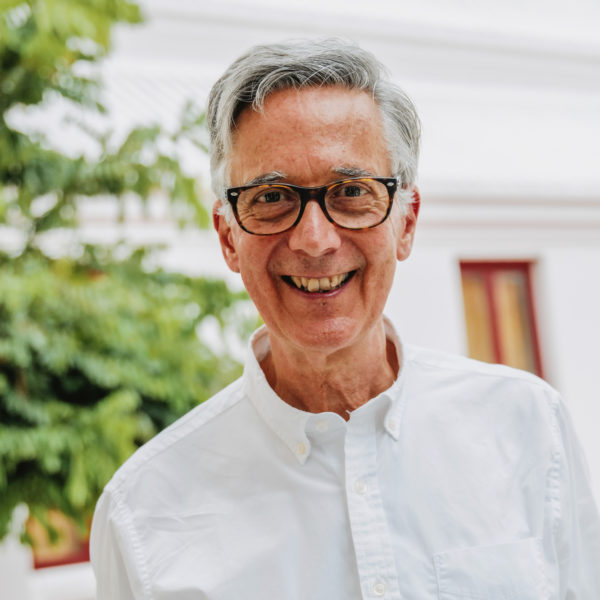
84000 Team Biography
Dr. Andreas Doctor
Editorial Director
Andreas Doctor (PhD 2004, University of Calgary) lives with his family in a small village in Denmark. He has been involved in translating and editing for 84000 since the very early days and is currently serving as editorial director.
For a number of years, Andreas has studied Buddhist history and philosophy under the guidance of Tibetan monks and lamas, mostly in Nepal at Ka-Nying Shedrub Ling Monastery. As a founding member of Rangjung Yeshe Institute (www.ryi.org), he spent fifteen years teaching at the Institute and for most of this period he served as Director of Studies at Kathmandu University’s Centre for Buddhist Studies, located at Rangjung Yeshe Institute.
Andreas is Director of Dharmachakra Translation Committee (www.dharmachakra.net) where he has participated in numerous translation projects, most recently in the translation of sutras and tantras from the Tibetan canon. He is also a founding member of Rangjung Yeshe Gomde Denmark (www.gomde.dk).
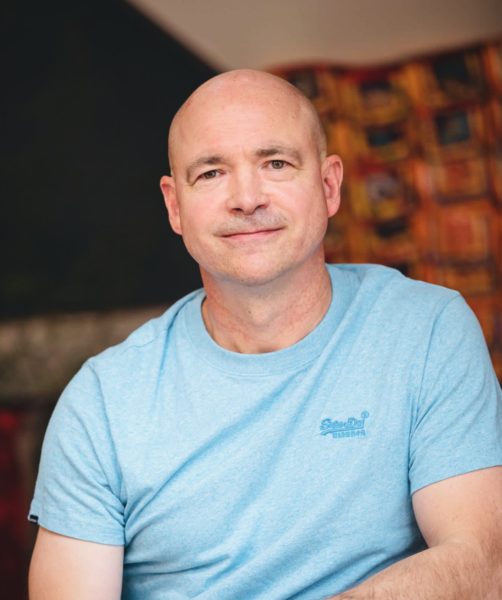
84000 Team Biography
Dominic Latham
Head of Digital Editions
Dominic Latham grew up in the beautiful countryside of Warwickshire in the UK. His father was a green grocer and his mother a florist who battled with a chronic lung disease. Together, these are some of the conditions that led to Dominic’s early appreciation of family, order, beauty and hard work.
After finishing school, he moved to London and gained degrees in Fine Art, Cultural Studies and Digital Media and began working as a programmer and software designer. He co-founded a company pioneering the use of the internet to make online bookings which grew to become a leading service provider. This experience gave him the opportunity to work closely with a large and diverse group of talented people.
He now has 25 years experience building technical solutions for organisations. As Technical Lead for 84000, he particularly likes to engage with readers, editors and translators and then develop elegant tools to suit their respective needs. He still likes to draw, mostly as a way to practice seeing things as they are – an ambition closely linked to his Buddhism. Dominic lives in Berlin with his German wife and their three children.
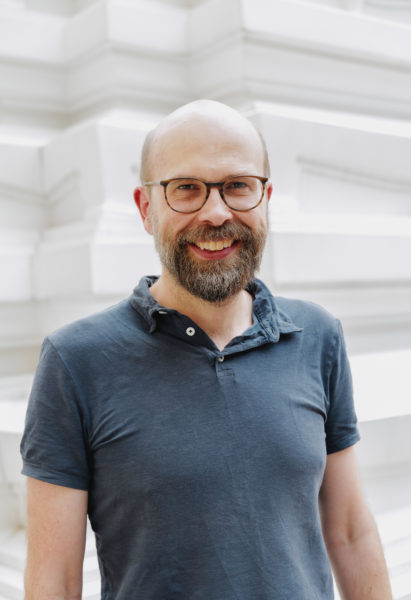
84000 Team Biography
Pema Abrahams
Communications Director
With a decade of varied experience across South and Southeast Asia as a development professional and as a cultural heritage advocate, Pema was recently awarded a major project grant by The British Library’s Endangered Archives Programme to lead a local team in preserving and making available 100,000+ pages of the history of the former Himalayan kingdom of Sikkim.
Previously, Pema had been working on systemic rights and post-conflict issues in South Asia with Human Rights Watch (New York; New Delhi); The Asia Foundation (Nepal); and International Crisis Group (London). Prior to this, in New York, she worked in the arts at the International Center of Photography, among other galleries and publications.
Pema holds an MSc Conflict Studies, specializing in International Human Rights Law, from London School of Economics; and BAs in History and Art History from NYU, where she focused on cultural shifts in Central and South Asia.
Now based in Thailand, she is on the board of the Neilson Hays Library (Bangkok), but mostly considers herself fortunate to have entered the dharma as a child under the kindness of Thinley Norbu Rinpoche – who among other things, piqued her interest in Monday night boxing and blueberry pancakes.
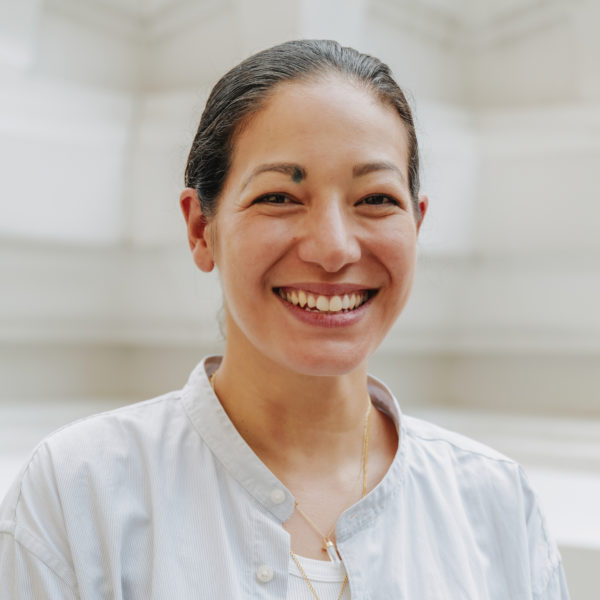
84000 Team Biography
Dr. Andreas Doctor
Editorial Director
Andreas Doctor (PhD 2004, University of Calgary) lives with his family in a small village in Denmark. He has been involved in translating and editing for 84000 since the very early days and is currently serving as editorial director.
For a number of years, Andreas has studied Buddhist history and philosophy under the guidance of Tibetan monks and lamas, mostly in Nepal at Ka-Nying Shedrub Ling Monastery. As a founding member of Rangjung Yeshe Institute (www.ryi.org), he spent fifteen years teaching at the Institute and for most of this period he served as Director of Studies at Kathmandu University’s Centre for Buddhist Studies, located at Rangjung Yeshe Institute.
Andreas is Director of Dharmachakra Translation Committee (www.dharmachakra.net) where he has participated in numerous translation projects, most recently in the translation of sutras and tantras from the Tibetan canon. He is also a founding member of Rangjung Yeshe Gomde Denmark (www.gomde.dk).

84000 Team Biography
Dr. John Canti
Senior Editor
John Canti studied medicine and anthropology at Cambridge University (UK) and qualified as a doctor in 1975. While still a medical student he met and began to study with some of the great Tibetan Buddhist masters of the older generation, especially Kangyur Rinpoche, Dudjom Rinpoche, and Dilgo Khyentse Rinpoche. After some years of medical work in northeastern Nepal in the late 1970s he went to the Dordogne, France, to complete two three-year retreats at Chanteloube, and has remained primarily based there ever since.
John is a founding member of the Padmakara Translation Group, was a Tsadra Foundation Fellow from 2001-2012, and was awarded the 2016 Khyentse Foundation Fellowship. In 2009, when 84000 first started, he was appointed editorial chair of 84000, and in 2023 has become senior editor.
His interest in the Kangyur and Tengyur has continued to grow as the project has taken shape, and he feels more and more fascinated by their origins and history, their range of content, and above all by the significance of the extraordinary body of literature the two collections have preserved.

84000 Team Biography
Dr. Ryan Damron
Research Editor
Ryan began his study of Tibetan, Sanskrit, and Buddhist literature in traditional settings during a decade spent in the Kathmandu Valley, and then pursued academic training in the Department of Middle East and Asian Languages and Cultures at Columbia University and the Department of South and Southeast Asian Studies at the University of California, Berkeley. He received his PhD in Sanskrit and South Asian Studies from UC Berkeley in 2021. Ryan began working for the 84000 in 2013 as a translator with Chokyi Nyima Rinpoche’s Dharmachakra Translation Committee, and joined the editorial team in 2017. Ryan reads broadly in the Buddhist canon as part of his translation and editorial work, and specializes in dhāraṇī and tantric literature.
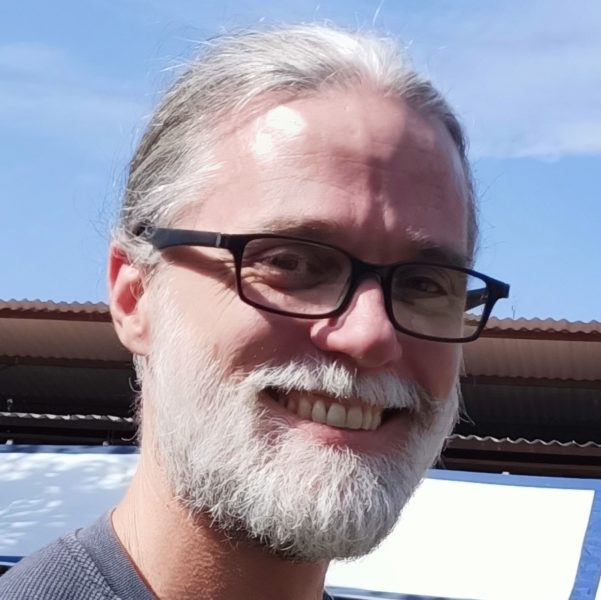
84000 Team Biography
Dr. David Fiordalis
Research Editor
David Fiordalis has had a lifelong personal interest in the religions, cultures, and history of Asia, especially South Asia and the Himalayan region. He began a formal study of Sanskrit while attending Carleton College for his undergraduate degree and won a Fulbright fellowship to investigate Sanskrit educational practices in India in 1998-99. In graduate school he began to learn Pāli, Tibetan, and Japanese, and went on to earn a doctorate in Asian languages and cultures with a focus on Buddhist Studies at the University of Michigan. Since 2011, he has taught at Linfield University in Oregon, where he is a tenured associate professor. He has also taught at Buddhist institutions of higher education, such as Rangjung Yeshe Institute in Kathmandu, Nepal, and Maitripa College in Portland, Oregon.
His publications include studies, editions, and translations of Buddhist narrative literature, particularly on the topic of the fantastic, as well as work on Buddhist philosophy and meditation practice. As someone with deep respect for the Buddhist tradition and its literary heritage, he feels tremendous gratitude for the opportunity to contribute to the work of the 84000 project.
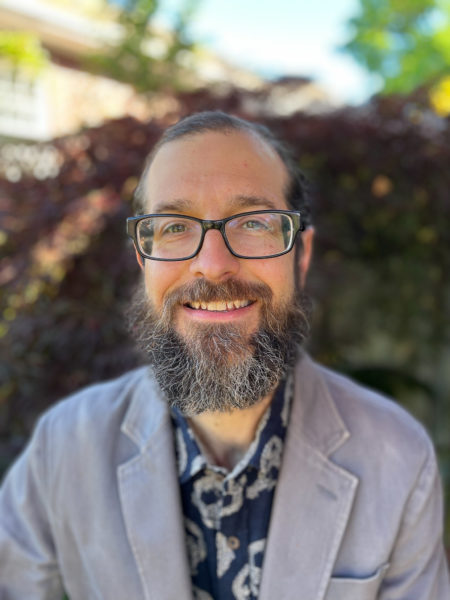
84000 Team Biography
Dr. Torsten Gerloff
Research Editor
Torsten began his academic studies in 2008 at the University of Hamburg, where he studied Sanskrit (major), and Tibetan and Thai (minor). In 2012, he received his BA and then deepened his study of Tantric Buddhism (specifically the Hevajra cycle) and Sanskrit philology. In 2014, he submitted his MA thesis, and three years later, in 2017, his doctoral dissertation, both concerning the Hevajra lineage associated with Saroruhavajra (Tib. mtsho skyes rdo rje). After three years of research and teaching at the International PhD Program in Buddhist Textual Studies, Mahidol University, Thailand, Torsten returned to his alma mater to conduct a joint research project on Indrabhūti’s Jñānasiddhi, a tantric work from the transition phase of the predominance of the Yoga- and Mahāyogatantras to that of the later Yoginītantras. Although he primarily focuses on the Buddhist Tantric traditions with a special emphasis on the Hevajra and Guhyasamāja systems, Torsten has a general interest in the study of Mahāyāna Buddhism and Abhidharma literature in the cultural extents of India, Tibet, and beyond, considering the close study of the surviving textual witnesses of major importance for a more complete and thorough understanding of the Buddhist traditions in the light of their own doctrinal positions and soteriological practices.
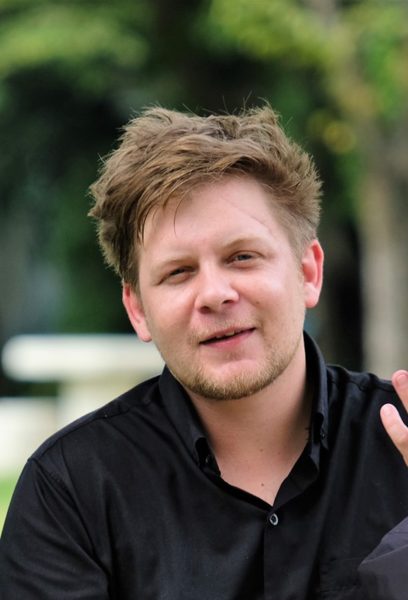
84000 Team Biography
Dr. George FitzHerbert
Research Editor
Before starting work with 84000 in 2022, George FitzHerbert was a lecturer teaching Tibetan and Tibetan Studies full time at the University of Oxford in England, where he previously received a DPhil in Tibetan Literature focusing on the Gesar epic. His enthusiasm for Tibetan culture began when, as a school leaver in 1992, he volunteered as an English teacher at the Kham Lingtsang refugee settlement near Dehradun, India and then travelled to Nepal and central Tibet. This youthful experience fostered a fascination with the wealth of Tibetan culture and an abiding awe for the sophistication and devotionalism of Tibetan religious life. Over the next thirty years he has continued to make trips to different parts of the Tibetan-speaking world, Mongolia and central Asia, and spent five years living in southern India. With degrees from Oxford, SOAS and Harvard, his scholarly interests have shifted over time from themes of contemporary society, myth and folklore to Tibetan religious history and the Buddha dharma. In addition to academic, editorial, and ghost-writing roles, he has also worked as a radio journalist, a documentary filmmaker, and a drama teacher. He continues to live in Oxford, England, with his family.
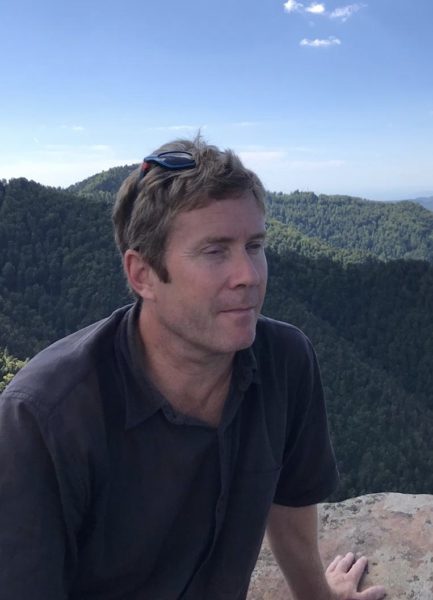
84000 Team Biography
Dr. Rory Lindsay
Research Editor
Rory Lindsay is a research editor at 84000 and an assistant professor in the Department for the Study of Religion at the University of Toronto. He is also a visiting scholar at the Buddhist Texts Translation Initiative at the University of California, Santa Barbara. His forthcoming book Saving the Dead: Tibetan Funerary Rituals in the Tradition of the Sarvadurgatipariśodhana Tantra (Wiener Studien zur Tibetologie und Buddhismuskunde, 2022) examines the history of Kunrik funerary practices in Tibet and the intersecting forms of agency—human, nonhuman, and material—that are described in Kunrik ritual manuals. Rory completed his BA and MA degrees at the University of Toronto and his PhD at Harvard University.
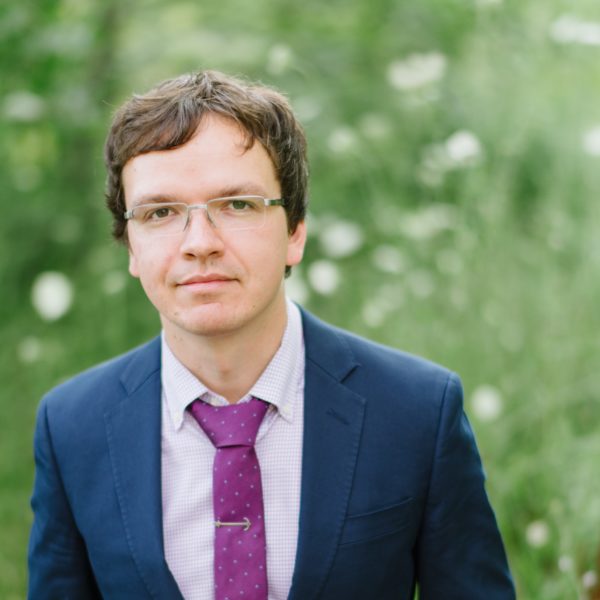
84000 Team Biography
Dr. Bob Miller
Research Editor
Bob has been working as an interpreter and translator of Tibetan since completing the Lotsawa Rinchen Zangpo Translator Program in 2000. From 2000–2007, Bob interpreted for Gyumé Khensur Rinpoche (Geshe Tashi Tsering) at Chenrezig Institute in Australia. While there, Bob was ordained as a monk and translated a wide range of texts—from logic and epistemology to tantra—as well as The Buddha’s Medicine for the Mind, a collection of Gyumé Khensur Rinpoche’s lectures on Tsongkhapa’s Three Principal Aspects of the Path. In 2007, Bob returned to Dharamsala, where he acted as interpreter and secretary to Garje Khamtrul Rinpoche. While there, Bob served as monastery bursar (phyag mdzod) and translated Rinpoche’s autobiography, Memories of Lost and Hidden Lands. In 2016, Bob began a PhD program with the Group in Buddhist Studies at the University of California, Berkeley, which he completed in December 2023. Bob’s work focuses on the Vinaya’s description of monastic mentorship as a process of intellectual and social-emotional learning; the eighth–ninth century Indo-Tibetan translation project; the tenth–twelfth c. reintroduction of the Mūlasarvāstivāda Vinaya and its ordination lineage to central Tibet; early Kadampa commentaries on Guṇaprabha’s Vinayasūtra and novice training; and thirteenth–fourteenth c. Vinaya scholarship at Zulphu and Kyormolung monasteries.
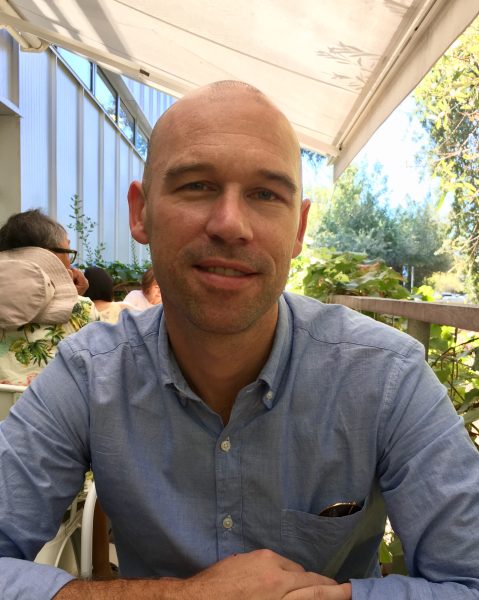
84000 Team Biography
Dr. Nathaniel Rich
Research Editor
Nathaniel studied philosophy and history as an undergraduate in Texas, and completed an MA and PhD in religious studies at the University of California, Santa Barbara with an academic focus on the intellectual and institutional history of the Nyingma tradition of Tibetan Buddhism. He is currently investigating the place of sūtra literature in the historical development of Tibetan Buddhist traditions, and is especially interested in developing course materials for the study of the Kangyur in both undergraduate classrooms and Buddhist communities.
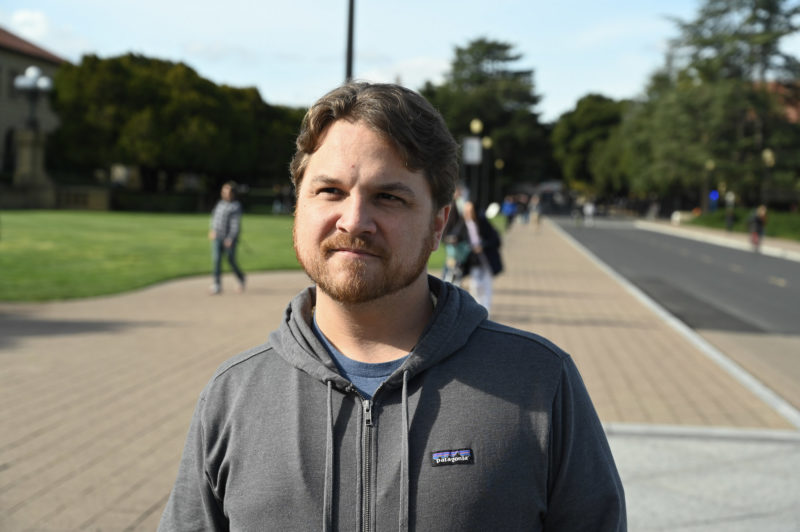
84000 Team Biography
Line Tofte
Editorial Manager & HR Coordinator
Line was born and grew up in Denmark but has spent a large part of her life living and working in other European countries. Her interest in different cultures and ways of life brought her to study ethnography and anthropology at the Université Nice Sophia Antipolis (France) and Aarhus University (Denmark), from where she graduated with a master’s degree in 2001.
She then worked for two decades in various types of international organizations, together with colleagues from all over the world. During this time she gained extensive experience in areas such as document management, project management, human resources, general administration and more.
In March 2020 she joined 84000 to take up the position of Editorial Manager in the Editorial team. When she is not busy keeping everyone and everything organized, she loves going for walks in the Danish countryside where she now lives.
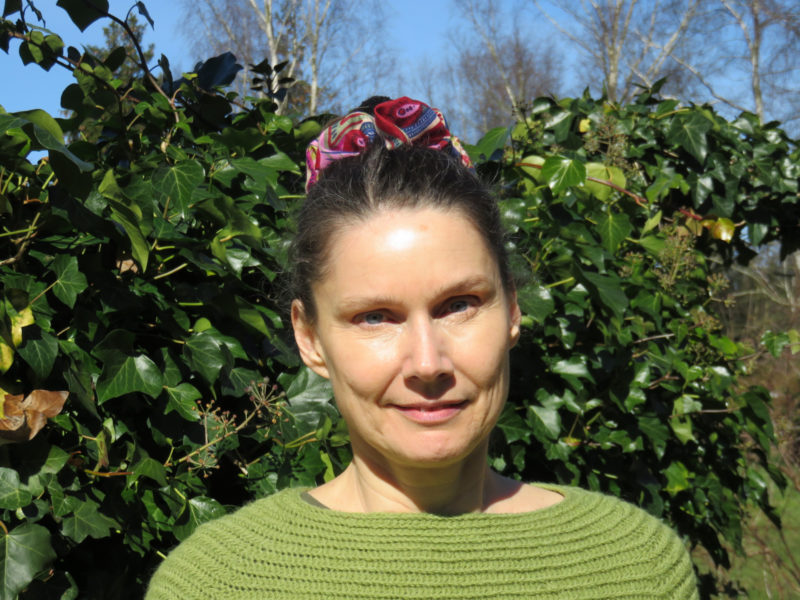
84000 Team Biography
Lowell Cook
Associate Translator
Lowell Cook completed his MA in Translation, Textual Interpretation, and Philology at the Rangjung Yeshe Institute in 2017. He is the author of Tibetan Pure Land Buddhism: Mipham Rinpoche on Self-Power and Other-Power, the translator of Sangngak Tenzin Rinpoche’s A White Conch Spiraling Toward Happiness: Poems of a Tibetan Master, and the recipient of a National Endowment for the Arts grant to translate A Frostbitten Flower and Other Stories: The Complete Fiction of Dondrup Jyel. Lowell has translated independently for 84000 since 2016 before formally joining as an associate translator in 2023. He has also contributed translations to Samye Translations, Lotsawa House, the Journal of Tibetan Literature, and others. Lowell is inspired by the scholar-practitioners of the past and a translation practice that is informed by the living Buddhist tradition.
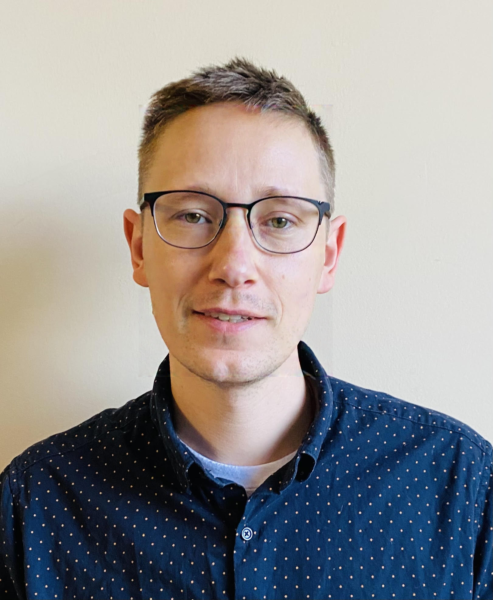
84000 Team Biography
Dr. Catherine Dalton
Associate Translator
Catherine Dalton has worked as an oral interpreter and textual translator of Tibetan Buddhist teachings since the early 2000s. She earned her doctorate in Buddhist Studies at UC Berkeley in 2019 with a dissertation focused on Indian Buddhist tantra. Catherine received her MA at Kathmandu University’s Centre for Buddhist Studies at the Rangjung Yeshe Institute, where she served for more than a decade as an oral interpreter for monastic philosophy instructors, and taught Tibetan language and translation. Inspired by her teachers’ wish to make the Buddha’s words directly accessible in the modern world, Catherine has contributed to 84000 since its inception through participating in the translation of both sūtras and tantras, first as a member of the Dharmachakra Translation Committee and since 2020 as one of 84000’s team of in-house translators.
Catherine is an Assistant Professor at Kathmandu University’s Centre for Buddhist Studies at the Rangjung Yeshe Institute, where she teaches in RYI’s MA program in Translation, Textual Interpretation and Philology. She also serves Chokyi Nyima Rinpoche as an oral interpreter. Catherine spends her time between the peaceful forests of Rangjung Yeshe Gomde California and the bustling streets of Boudhanath, Kathmandu.
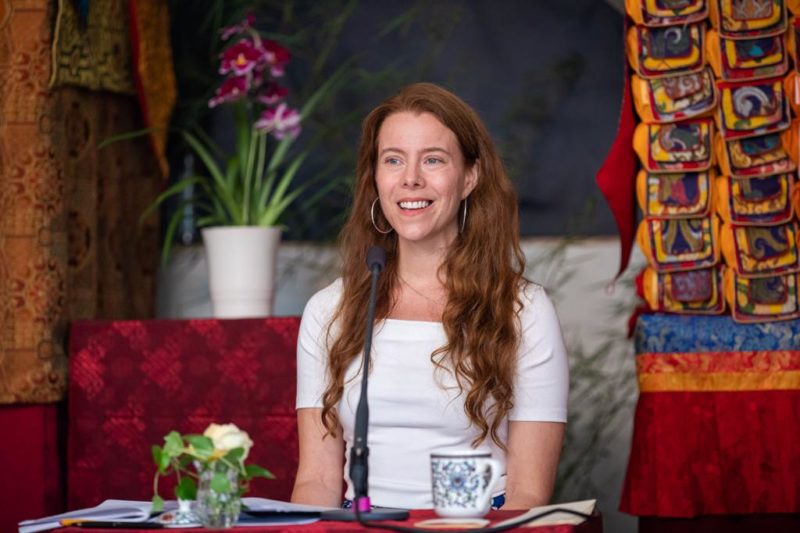
84000 Team Biography
Dr. Dylan Esler
Associate Translator
Dylan Esler is a scholar and translator of Tibetan Buddhist texts. He holds a PhD from the University of Louvain and an MA in Buddhist Studies from SOAS, University of London. Before joining 84000, he was a researcher at the Center for Religious Studies (CERES) of the Ruhr-University Bochum, where he worked on two projects, devoted to Nyingma tantric scriptural production and the early Dzogchen tradition, respectively. He is affiliated with the Oriental Institute of Louvain (CIOL), where he has held the Satsuma Chair, and has also taught at the INALCO in Paris. Dylan’s research interest focuses on early Nyingma expositions of Dzogchen and Tantra. His annotated translation of Nubchen Sangye Yeshe’s Samten Migdrön, a seminal 10th-century text on Buddhist contemplation, is forthcoming from Oxford University Press, and his study of Nubchen’s Dzogchen commentaries, entitled Effortless Spontaneity, will be published by Brill in 2023.
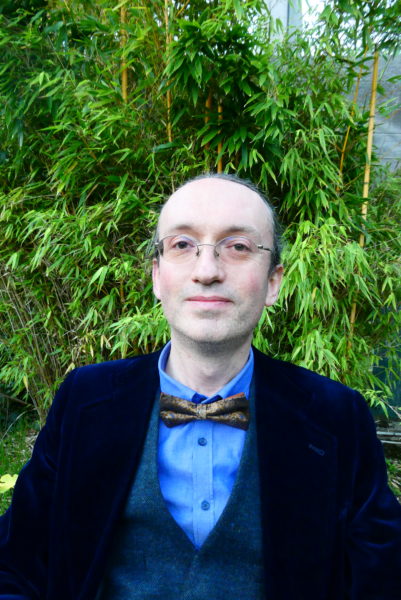
84000 Team Biography
Dr. Bruno Galasek-Hul
Associate Translator
Bruno Galasek-Hul has translated part-time for 84000 since 2015 and joined the organization as an associate translator in 2022. He met his principal teacher of Tibetan Buddhism in 1998. This set him on a parallel path to study Classical Indology, Tibetan Studies, and the History of Indian Arts at the University of Bonn, Germany, where he earned his Ph.D. degree in 2013 with a dissertation on the narratology of literary characters in the Pāli Canon. As a doctoral student he spent one year (2010–2011) in Oxford, studying with Professor Richard Gombrich and the late Lance Cousins. From 2013–2015, he was a visiting scholar at UC Berkeley’s Center for Buddhist Studies and a postdoctoral candidate at the Mangalam Research Center for Buddhist Languages. Since then, he has served as an adjunct professor at the Institute of Buddhist Studies in Berkeley and contributed to A Visual Dictionary and Thesaurus of Buddhist Sanskrit as a senior lexicographer. Bruno enjoys working with a wide range of Buddhist texts written in Pāli, Sanskrit, and Classical Tibetan. His latest publication is The Life of the Buddha by the Third Karmapa, Rangjung Dorjé: Story 101, a supplement to The Hundred Jātakas (skyes rab brgya pa).
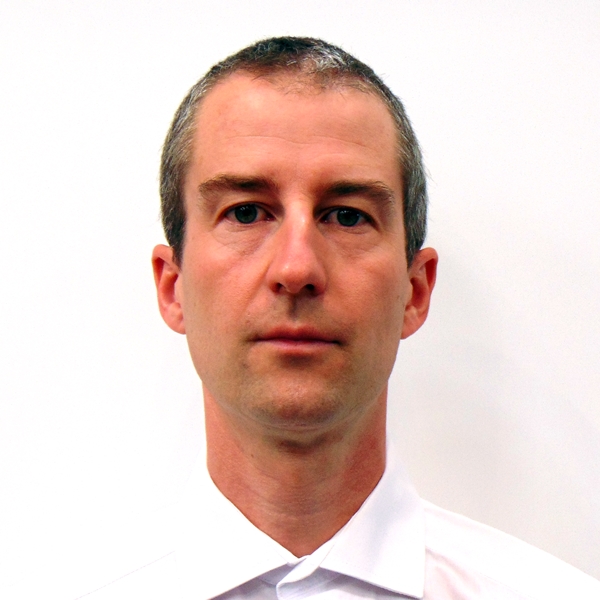
84000 Team Biography
Dr. Paul G. Hackett
Associate Translator
Paul Hackett completed his doctorate in Indo-Tibetan studies at Columbia University in 2008, building on his previous studies at the University of Virginia, where he received his masters in Religion and at the University of Maryland where he received another masters in Library and Information Science. He subsequently held a position as an editor/translator for the American Institute of Buddhist Studies and as Classical Tibetan language instructor at Columbia and Yale Universities.
His research interests are wide-ranging in the field of Tibetan and Buddhist Studies, including natural language processing (NLP) for literary Tibetan, Indo-Tibetan Buddhist philosophy with a particular focus on canonical sources and their reception in the Geluk tradition, and the history of Tibetan Buddhism as alternative religion in America.
His dissertation was published as “Theos Bernard, The White Lama: Tibet, Yoga, and American Religious Life” (Columbia Univ. Pr., 2012), while his two most recent publications are a pair of Tibetan language reference and study works: “A Tibetan Verb Lexicon” and “Learning Classical Tibetan” (Snow Lion, 2019).
He lives in New York City and is currently engaged in research on the Guhyasamāja Tantra and related literature.
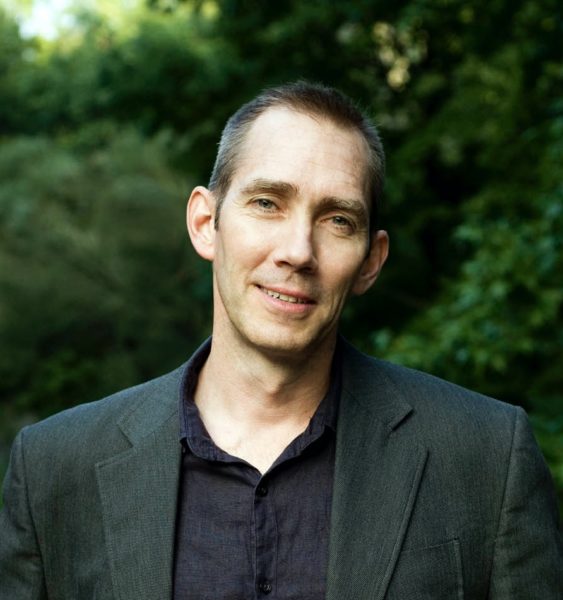
84000 Team Biography
Dr. Annie Heckman
Associate Translator
Born in Chicago, Annie Heckman is an Associate Translator for 84000 whose research focuses on stories about nuns in the Mūlasarvāstivāda Vinaya, with an emphasis on fourteenth-century Tibetan editorial and digesting practices. She holds MA and PhD degrees from the University of Toronto’s Department for the Study of Religion and Book History and Print Culture collaborative program, as well as a BFA from the University of Illinois at Chicago and an MFA from New York University in Studio Arts. She studied Tibetan language and literature at the University of Chicago Graham School prior to pursuing graduate work in Buddhist studies. She has taught at DePaul University, contributed to Bird of Paradise Press in Virginia, and worked as a reviewer of Dunhuang manuscripts at McMaster University, where she was an Ontario Visiting Graduate Student from 2017 to 2019. She was among the first three recipients of the annual Tsadra Foundation Dissertation Fellowship for Tibetan Buddhist Studies, with a thesis on Butön Rinchen Drub’s digest of vinaya narratives involving nuns.

84000 Team Biography
Dr. Adam C. Krug
Associate Translator
Adam began working with 84000 in 2017 as a translator and editor with Chokyi Nyima Rinpoche’s Dharmachakra Translation Committee. He earned his Doctorate in Buddhist Studies and South Asian Religions from the University of California, Santa Barbara in 2018, and has held teaching positions at the University of Colorado, Boulder and the University of Memphis. Adam’s editorial and translation work for 84000 covers a broad range of genres from the avadāna literature to Mahāyāna sūtras, dhāraṇīs, and tantras, and he has published his own research in a number of academic journals and collected volumes. His doctoral research focused on the Indian Mahāmudrā tradition in The Seven Siddhi Texts (Grub pa sde bdun), a corpus of treatises composed by seven Indian mahāsiddhas identified among students of the 11th century master Advayavajra in Nepal and Tibet as some of the earliest works to discuss the tantric theory and practice of Mahāmudrā. In addition to his work as an Associate Translator with 84000, Adam is currently preparing his translations and study of The Seven Siddhi Texts for publication.

84000 Team Biography
Dr. Ana Cristina O. Lopes
Associate Translator
Ana Cristina O. Lopes holds a PhD in cultural anthropology from the University of Sao Paulo. Specialized in the transnationalization of Tibetan Buddhism, she has conducted extensive fieldwork research throughout Asia, Europe, and the Americas. As part of her research, she has studied Classical Tibetan since 1996, first during her MA in Religious Studies with Professor Robert Thurman, and later during postdocs at Columbia University and Harvard University. She also completed the Translation Training Program at Rangjung Yeshe Institute in Kathmandu, Nepal, and has been studying under the tutelage of Professor James Gentry (Stanford University) since 2007.
Ana Cristina has held teaching positions at the University of Virginia and the University of North Carolina at Greensboro. Recently, she has also taught at Stanford University and at Rangjung Yeshe Gomde Germany-Austria. Currently, she is a visiting scholar at Stanford University’s Center for South Asia.
Ana Cristina is the author of Tibetan Buddhism in Diaspora: Cultural re-signification in practice and institutions (Routledge, 2015). Since 2016, she has contributed to 84000 as a translator with Chökyi Nyima Rinpoche’s Dharmachakra Translation Committee. She has also worked in collaboration with Siddhartha’s Intent Brazil to translate Dzongsar Khyentse Rinpoche’s books and other works into Portuguese.

84000 Team Biography
Wiesiek Mical
Associate Translator
Wiesiek has been translating Buddhist texts for 84000 as member of the Dharmachakra Translation Committee since 2010; and in 2020 formally joined 84000 as an Associate Translator. Having begun learning Sanskrit in 1975, in his native Poland, Wiesiek continued at the School of African and Oriental Studies, University of London. From 2004 to 2010, he taught Sanskrit at Rangjung Yeshe Institute (University of Kathmandu) in Nepal, where he has lived since 2005. His experience with the Dharma began in 1979 and still continues today.
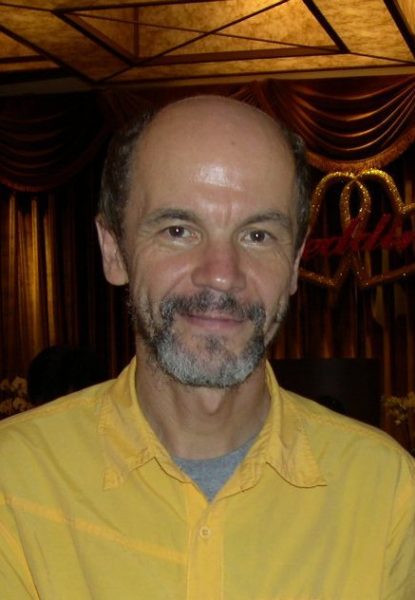
84000 Team Biography
Sophie McGrath
Trainee Translator
Sophie fully immersed herself in Tibetan language, culture, and traditional philosophical studies for nine years by pursuing the geshé degree curriculum in nunneries in India and Nepal. Following that, she interpreted for Tibetan geshés in the West to facilitate FPMT Basic and Masters programs. Along with this she also translated philosophical texts, including The Fourteenth Dalai Lama’s Stages of the Path, Volume 2, published by Wisdom Publications.
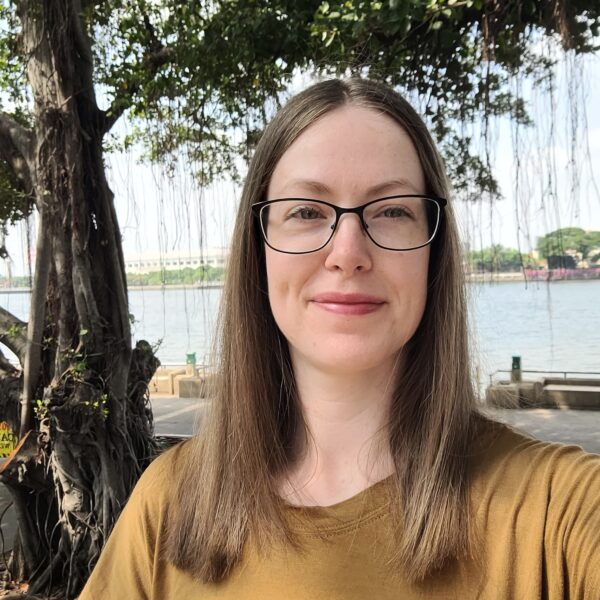
84000 Team Biography
Dr. Dawn Collins
Copyeditor
Dawn Collins holds an MA in Buddhist Studies from SOAS, University of London and a PhD from Cardiff University focusing on Tibetan landscapes and ritual healing. She is a Research Fellow of the Foro di Studi Avanzati Gaetano Massa (FSA), Rome, Italy (Gaetano Massa Research Institute for Advanced Study of the Humanities) and lectures at the Sophia Centre for Cosmology in Culture, the University of Wales Trinity Saint David. Before joining 84000 as a copyeditor, she had over 20 years of experience as a freelance copyeditor/proofreader, most recently working on two volumes for the Dzogchen Project at Ruhr-University Bochum. Her interest in Tibetan religions and languages has led her to study at Lhasa University-where she also taught English, at Rangjung Yeshe Institute in Kathmandu and at the Manjushree Center of Tibetan Culture in Darjeeling. The range of research projects she has engaged in includes a British Academy-funded exploration of contemporary ritual dance expression in Bhutan and documentary film research about life in the Welsh valleys. Her research is inspired by and grounded upon the Buddhadharma, her practice as a dance artist and as a practitioner of traditional massage therapies from Thailand and Japan.
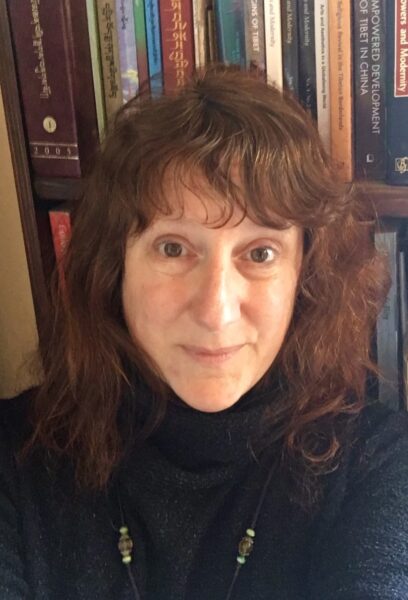
84000 Team Biography
Ven. Konchog Norbu
Copyeditor
Ven. Konchog Norbu is a graduate of Brown University, where he primarily studied 19th and 20th century American literature and creative writing. Discovering the Dharma soon thereafter, he took the novice (getsul) precepts of a Buddhist monk during Khenchen Jigme Phuntsok’s North American tour in 1993, and received his full (gelong) ordination from Drubwang Penor Rinpoche in 1995. He has served several Dharma communities in the capacity of communications and media relations.
Prior to joining 84000 as an English copyeditor, Ven. Konchog most recently worked for Lion’s Roar, creating online content; performed extensive editorial work for the translated teachings of both Khenchen Tsultrim Lodro and Khenpo Sodargye; and taught English to the monks and nuns of the English Translator Training Program at the Ngagyur Nyingma Institute at Namdroling Monastery in Bylakuppe, South India, where he also served as advisor for the various publication projects of the Rigzod Editorial Committee.
Ven. Konchog now lives in Crestone, CO, where he is on the board of the Pema Chōling monastic community.
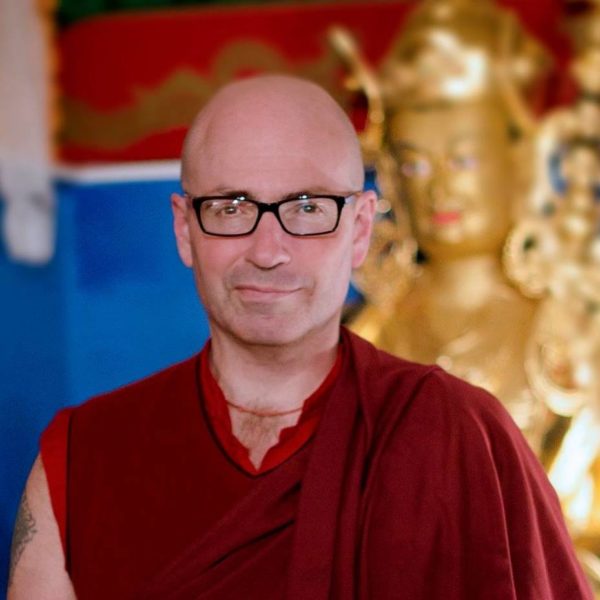
84000 Team Biography
Laura Goetz
Copyeditor
Laura was born and raised in the middle of New York state. She studied creative writing at Cornell University, after which she spent several years composing, recording, and performing music while traversing the US and Europe. Having learned about new and wonderful things in the meantime, she went on to obtain an MA in Buddhist studies at Naropa University focusing on translation of Tibetan and Sanskrit.
After spending some time in Eastern Tibet and North India furthering her Tibetan studies, she worked as a research assistant at the Tsadra Foundation in Boulder, CO, and briefly with the editorial department at Shambhala Publications.
She currently resides in Austria and is pursuing her PhD at the University of Vienna on the topic of tantric theory of late Indian Buddhism.
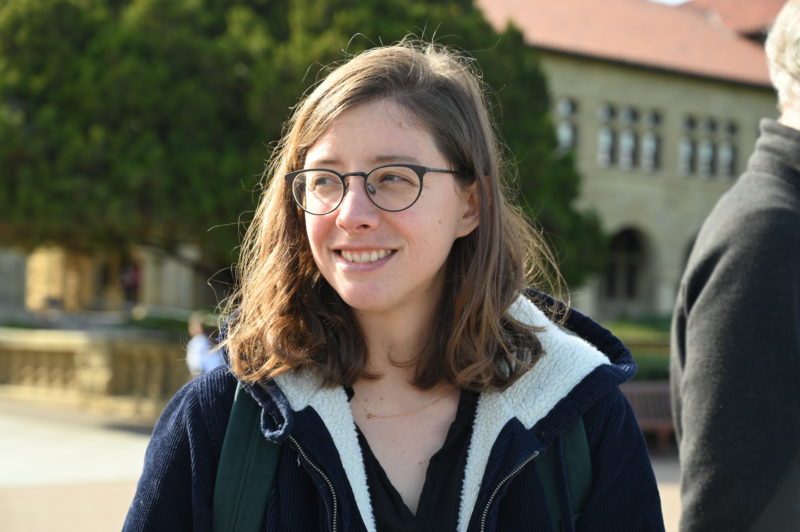
Advisors
- Dr. Tom Tillemans Professor Emeritus, University of Lausanne
- Dr. James Gentry Stanford University
Grants Committee
- Huang Jing Rui, Chair
- Dr. John Canti
- Dr. Andreas Doctor
- Dr. Ryan Damron
- Dr. Rory Lindsay
- Dr. Nathaniel Rich
- Amy Ang, Grants Coordinator
- Line Tofte, Grants Administrator
84000 remains a collaborative endeavor and texts are also translated on a project-basis by our translation grant recipients.
84000 Team Biography
Jeff Wallman
Director of Technology
Jeff has 20+ years of experience leading cultural heritage organizations, with a keen focus on strategic technology planning and implementation. In 2001, after quitting his corporate engineering job to attend a month-long silent meditation retreat, he met Gene Smith in Cambridge, MA. He worked closely with Gene during the formation of Tibetan Buddhist Resource Center building technical and organizational capacity, and establishing TBRC’s first digital library in 2006. In 2009, Jeff became Executive Director at Gene’s request. During his tenure he established foundational programs that significantly advanced the organizational mission. He established the Harvard University Repository for the Long-Term Preservation of Tibetan Texts, and the massive digital preservation program for Tibetan culture in China funded by the United States Agency for International Development. In 2015, he led the formal expansion of TBRC, funded by the American Council of Learned Societies, into all Buddhist languages. He founded the Buddhist Universal Digital Archives (BUDA) as a linked-data fueled hub of Buddhist texts, funded by the Robert H.N Ho Family Foundation, and the preservation and access of the National Library of Mongolia. In 2018, Jeff stepped down in a planned transition and led the search committee to hire his successor Jann Ronis. In the last few years, Jeff has worked to advance technology in a variety of cultural initiatives, including Asian Legacy Library, Khyentse Foundation, the Hip-Hop Education Center, Tolani Lake Enterprises (Navajo Nation), and the Owl Bonnet Cultural Preservation Organization (Lakota Nation). Jeff is thrilled to return to 84000 to advance its important mission.
Jeff met his teacher Tai Situ Rinpoche at the introduction of Gene Smith and under Rinpoche’s direction, completed the 8-year Mahamudra transmission at Sherab Ling, Bir, India. Jeff is a Sundancer in the Sicangu Lakota Oyate tradition of Yuwipi Medicine Man Chief Keith Horse Looking, Sr. He lives with his family in Western Massachusetts and their four dogs, who notoriously hijack Zoom meetings. He has a BA in Philosophy and an MS in Mechanical Engineering and Applied Mathematics.

84000 Team Biography
Dominic Latham
Head of Digital Editions
Dominic Latham grew up in the beautiful countryside of Warwickshire in the UK. His father was a green grocer and his mother a florist who battled with a chronic lung disease. Together, these are some of the conditions that led to Dominic’s early appreciation of family, order, beauty and hard work.
After finishing school, he moved to London and gained degrees in Fine Art, Cultural Studies and Digital Media and began working as a programmer and software designer. He co-founded a company pioneering the use of the internet to make online bookings which grew to become a leading service provider. This experience gave him the opportunity to work closely with a large and diverse group of talented people.
He now has 25 years experience building technical solutions for organisations. As Technical Lead for 84000, he particularly likes to engage with readers, editors and translators and then develop elegant tools to suit their respective needs. He still likes to draw, mostly as a way to practice seeing things as they are – an ambition closely linked to his Buddhism. Dominic lives in Berlin with his German wife and their three children.

84000 Team Biography
Aman Sharma
AI & Data Lead
Aman is a serial technology entrepreneur with 3 startups and has deployed over a dozen digital / AI products. He was a machine learning researcher at TU Wien (Vienna University of Technology), a UX / AI lead at upsell.ai and the founding lead at Mobile-web.dev . He is an active member of web and web3.0 community. He has delivered 40+ tech talks, shared advice on product building and mentored hundred of young entrepreneurs in technology and entrepreneurship. He was featured as a top CTO in India. Aman is CTO and Cofounder at Lamatic.ai and is thrilled to join the 84000 technology team to advance data and AI initiatives in service of 84000’s mission. Aman is motivated to preserve the Buddha’s wisdom for generations to come by leveraging AI and LLM.

84000 Team Biography
Rafael Ortet
UX and Design Lead
Rafael Ortet was born into a family of engineers, including his grandfather, an aviation engineer but also a passionate Christian theologist—it was from him that Rafael received an appreciation for religion and scriptures. At 14, Rafael joined his father’s metallurgy firm and received intensive training in thermoplastic molding and extrusion for six years. Over two decades, he worked at B2B companies such as Dynamit Nobel and UTA (MAI division), leading many significant projects to deliver electrical and electronic systems to top automobile makers.
After changing careers in his late thirties, Rafael has dedicated more than two decades to helping Buddhist organizations and individuals produce Buddhist publications for print and digital media channels, including essential collections of scripture in several languages. He is passionate about combining kind designs and wise technologies at the highest level to assist present and future generations in accessing the full range of the Dharma. To prepare for such endeavors, he also studied for many years at Rangjung Yeshe Institute under the guidance of his teacher, Chökyi Nyima Rinpoche.
Rafael lives in Chiang Mai, Thailand, and in his spare time enjoys walking in nature, touring around South Asia, and cooking.

84000 Team Biography
André Rodrigues
Senior Digital Editor & Glossary Lead
André Rodrigues first trained and worked as an architect, in Lisbon, where he grew up, and also in Venice and London. But, having found Buddhism in his early teens, all that merely served to quench his curiosity about saṃsāric life. In any case, the broad scope of an architect’s training, learning to structure ideas and creative problem solving have proven to be very useful in all fields.
In his mid-twenties, he started to devote himself solely to Buddhist studies and practice, completing an extended three-year retreat in Chanteloube, in 2012. With the encouragement of his teachers, he studied (and continues to study) Tibetan and, currently, he is translating Dharma texts from Tibetan into Portuguese, and is the coordinator of the Portuguese language branch of the Padmakara Translation Group.
He started working part-time for 84000 in January 2017, taking the texts through the publication stages, making sure that the online glossaries show the right terms and so on. He feels privileged to be part of this incredible endeavor and to have the chance to read and learn from these precious texts.

84000 Team Biography
Celso Wilkinson
Publications Manager
Celso Wilkinson is a graduate of Naropa University where he studied Tibetan Buddhism and Tibetan Language. After graduating he continued his language studies abroad in Eastern Tibet and Northern India while intermittently working as a curriculum coordinator for the Nitartha Institute.
Now as a translator and TEI markup editor for 84000, in addition to translation his work has focused on developing various data projects for 84000. He is currently exploring ways in which this vast knowledge developed under the 84000 project can be utilized with computer technology as a resource for translators and researchers. This includes developing a translation memory project as well as exploring the current state of translation software, applications, and data projects and how they can be of benefit through this valuable data.
He lives in Binghamton, NY, with his partner Laura (who is also on the 84000 editorial team) and their two cats. While not working for 84000, Celso is also a painter and writes graphic novels.
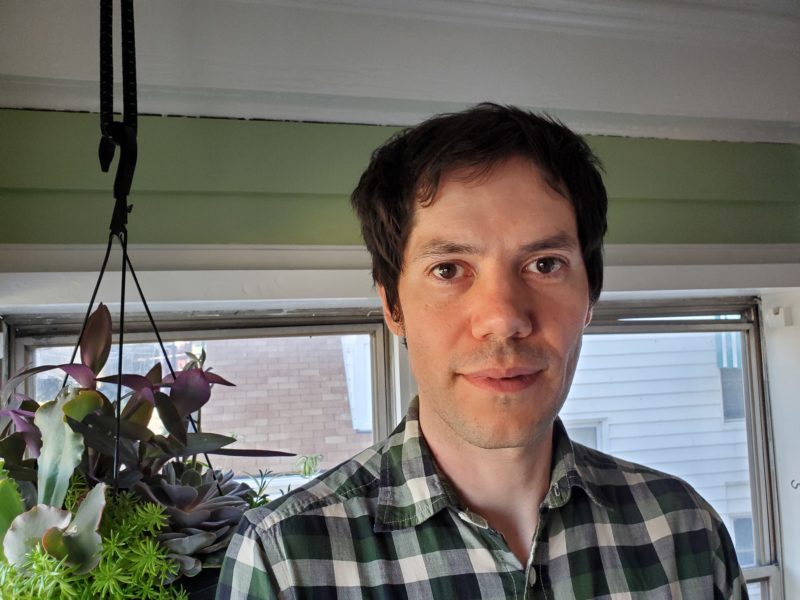
84000 Team Biography
Martina Cotter
Digital Editor
Martina began her career in marketing but began to pivot as her interest in Dharma studies developed. She delved into the study of Buddhist Philosophy and later into classical and colloquial Tibetan, first for several years in Pharping and Boudhanath in Nepal, and subsequently in Dharamsala in India. In 2017, Martina graduated with a master’s degree in Buddhist Philosophy from Rangjung Yeshe Institute (Kathmandu, Nepal). Prior to joining 84000 as a TEI markup editor, Martina worked as marketing manager for Rangjung Yeshe Institute. She is also involved in the Khyentse Vision Project’s Translator Training Program.
Martina was born and raised in Ireland, and currently lives in Buenos Aires, Argentina, with her husband,Gonzalo. In her spare time, she likes nothing more than to walk in nature getting in touch with the elements. She feels honored to be a part of 84000’s vision for translating the words of the Buddha and is happy to be part of something which resonates with her own spiritual outlook and values.
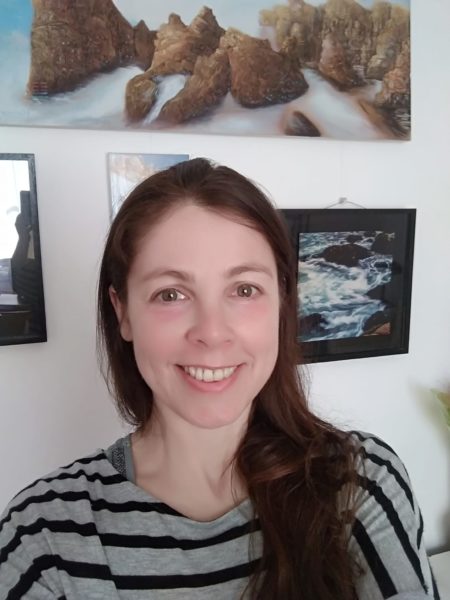
84000 Team Biography
Sameer Dhingra
Digital Editor
Sameer’s interest in Buddhism started in 2015, while he was traveling through India. He visited the ancient Buddhist caves at Ajanta, and started learning to meditate in Dharamshala. In 2017, he enrolled in a summer course at the Rangjung Yeshe Institute in Nepal. What started off as a two-month trip ended up in a four-year stay, at which point Sameer graduated from Rangjung Yeshe Institute with a BA in Buddhist Studies with Himalayan Languages. He now lives in Goa, where he enjoys going to the beach and feeding stray cats. He hopes to make his life meaningful by dedicating it to the Buddhadharma for the benefit of all sentient beings.
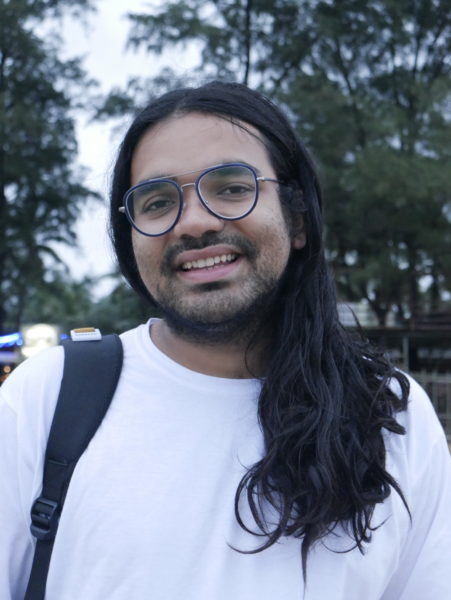
84000 Team Biography
David Scheuneman
Technology Infrastructure
Since the 1990s, David has followed a dual career path in information technology and religion. In addition to training and certifications in computer science, he has a master’s degree in theology, specializing in contemplative spirituality and community ministry. He has been a Dharma student for thirty years, practicing Mahāmudrā, Dzogchen, Zen, and other meditation traditions. When he’s not working on his cloud-computing duties, he can be found in the “cloud of unknowing,” meditating and teaching.
David has lived in far-flung locations ranging from Indiana to Iran, New York to Seattle, and Austin to Chicago. Now headquartered in Las Vegas, he is often away, living part-time in Berlin, or leading interfaith meditation gatherings at churches and retreat centers.
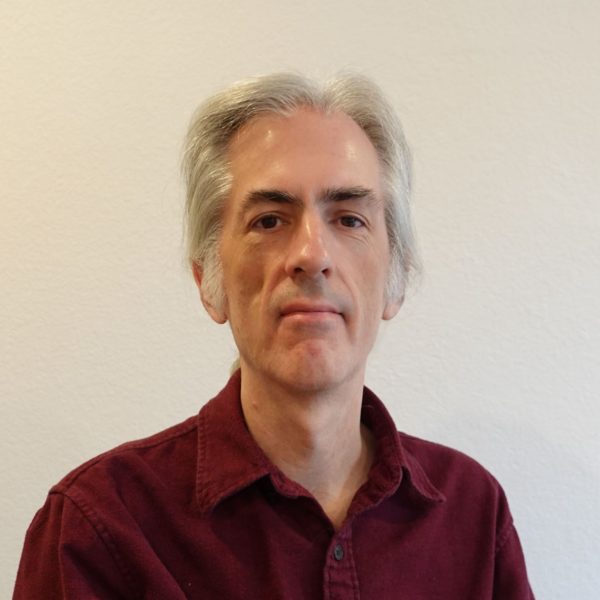
84000 Team Biography
Ruby Ostrow
Research Assistant
Ruby completed her Bachelor’s degree at Bard College, where she majored in Computer Science and Classical Studies. Her undergraduate thesis considered an approach to text summarization of fairy tales through an automatic retrieval of key characters and a proposed archetype classification system. She is currently pursuing an MSc in Artificial Intelligence at the University of Edinburgh.

Advisors
- Brian Gregor, M.A., Google Analytics Consultant
84000 Team Biography
Huang Jing Rui
Executive Director
Huang Jing Rui has been the appointed Executive Director since 84000 began as the Buddhist Literary Heritage Project in 2009. Prior to that, Jing Rui worked in the non-profit sector as a social worker in a community-based family service center in Singapore.
In part to seek alternative answers to the ills of urban living and in part to pursue her childhood dreams, she gave up her career to volunteer in a remote village named Bir in the Indian Himalayas. It was in these hills that she, most unexpectedly, stumbled upon the opportunity to take part in 84000—a hundred-year undertaking that will last beyond her lifetime.

84000 Team Biography
Ivy Ang
Board Member & Executive Committee Member
Ivy Ang has over 30 years of extensive experience in international business and organizational development. Her professional background includes VP Human Resources roles in the fields of high technology, biotechnology, branding, consulting and finance. She held VP HR positions for global industry leaders such as Genentech, AIG, Madge Networks and Landor Associates. She also has extensive experience consulting with for-profit and non-profit organizations. Ivy is the founder of Visionlinc, a consulting agency dedicated to linking vision, people and strategies. She is a strategic planner and executive coach to CEOs and their teams.
Her areas of expertise include strategic visioning and planning, leadership and management, executive coaching and team building with emphasis on creating high performing teams and innovative cultures to achieve organizational mission.
At the request of Dzongsar Khyentse Rinpoche, Ivy facilitated the 5-day Translating the Words of the Buddha conference in March, 2009 in Bir, India. The conference culminated in the birth of the historic 84000 project, with the 100-year goal of translating the words of the Buddha into modern languages, making it accessible to all: “Working with Rinpoche’s mandala has been the single most inspirational and fulfilling experience in my life”
Nonprofit organizations include: Khyentse Foundation, 84000, The Gross National Happiness Project in Bhutan, BDRC, MBA project, Gap coaching and other community projects.

84000 Team Biography
Dr. Andreas Doctor
Editorial Director
Andreas Doctor (PhD 2004, University of Calgary) lives with his family in a small village in Denmark. He has been involved in translating and editing for 84000 since the very early days and is currently serving as editorial director.
For a number of years, Andreas has studied Buddhist history and philosophy under the guidance of Tibetan monks and lamas, mostly in Nepal at Ka-Nying Shedrub Ling Monastery. As a founding member of Rangjung Yeshe Institute (www.ryi.org), he spent fifteen years teaching at the Institute and for most of this period he served as Director of Studies at Kathmandu University’s Centre for Buddhist Studies, located at Rangjung Yeshe Institute.
Andreas is Director of Dharmachakra Translation Committee (www.dharmachakra.net) where he has participated in numerous translation projects, most recently in the translation of sutras and tantras from the Tibetan canon. He is also a founding member of Rangjung Yeshe Gomde Denmark (www.gomde.dk).

84000 Team Biography
Jeff Wallman
Director of Technology
Jeff has 20+ years of experience leading cultural heritage organizations, with a keen focus on strategic technology planning and implementation. In 2001, after quitting his corporate engineering job to attend a month-long silent meditation retreat, he met Gene Smith in Cambridge, MA. He worked closely with Gene during the formation of Tibetan Buddhist Resource Center building technical and organizational capacity, and establishing TBRC’s first digital library in 2006. In 2009, Jeff became Executive Director at Gene’s request. During his tenure he established foundational programs that significantly advanced the organizational mission. He established the Harvard University Repository for the Long-Term Preservation of Tibetan Texts, and the massive digital preservation program for Tibetan culture in China funded by the United States Agency for International Development. In 2015, he led the formal expansion of TBRC, funded by the American Council of Learned Societies, into all Buddhist languages. He founded the Buddhist Universal Digital Archives (BUDA) as a linked-data fueled hub of Buddhist texts, funded by the Robert H.N Ho Family Foundation, and the preservation and access of the National Library of Mongolia. In 2018, Jeff stepped down in a planned transition and led the search committee to hire his successor Jann Ronis. In the last few years, Jeff has worked to advance technology in a variety of cultural initiatives, including Asian Legacy Library, Khyentse Foundation, the Hip-Hop Education Center, Tolani Lake Enterprises (Navajo Nation), and the Owl Bonnet Cultural Preservation Organization (Lakota Nation). Jeff is thrilled to return to 84000 to advance its important mission.
Jeff met his teacher Tai Situ Rinpoche at the introduction of Gene Smith and under Rinpoche’s direction, completed the 8-year Mahamudra transmission at Sherab Ling, Bir, India. Jeff is a Sundancer in the Sicangu Lakota Oyate tradition of Yuwipi Medicine Man Chief Keith Horse Looking, Sr. He lives with his family in Western Massachusetts and their four dogs, who notoriously hijack Zoom meetings. He has a BA in Philosophy and an MS in Mechanical Engineering and Applied Mathematics.

84000 Team Biography
Pema Abrahams
Communications Director
With a decade of varied experience across South and Southeast Asia as a development professional and as a cultural heritage advocate, Pema was recently awarded a major project grant by The British Library’s Endangered Archives Programme to lead a local team in preserving and making available 100,000+ pages of the history of the former Himalayan kingdom of Sikkim.
Previously, Pema had been working on systemic rights and post-conflict issues in South Asia with Human Rights Watch (New York; New Delhi); The Asia Foundation (Nepal); and International Crisis Group (London). Prior to this, in New York, she worked in the arts at the International Center of Photography, among other galleries and publications.
Pema holds an MSc Conflict Studies, specializing in International Human Rights Law, from London School of Economics; and BAs in History and Art History from NYU, where she focused on cultural shifts in Central and South Asia.
Now based in Thailand, she is on the board of the Neilson Hays Library (Bangkok), but mostly considers herself fortunate to have entered the dharma as a child under the kindness of Thinley Norbu Rinpoche – who among other things, piqued her interest in Monday night boxing and blueberry pancakes.

84000 Team Biography
Andrea Bringmann
Project Manager - Content
After working for ten years in advertising in Italy, in 2009 Andrea moved to Nepal to embark on a spiritual journey. There, she founded Street Dog Care, an NGO that aims to improve the health and living conditions of street dogs in Kathmandu. That same year, she met Dzongsar Khyentse Rinpoche at a teaching and a year later joined 84000 as a volunteer team member working with the outreach and communications team. Between 2010 and 2014 she also worked at Rangjung Yeshe Institute as a communications coordinator to rebuild their brand identity. In 2016, Andrea moved back to her home city of Berlin and continued to work with 84000, helping and support the content department. Andrea holds degrees in photography and business administration.
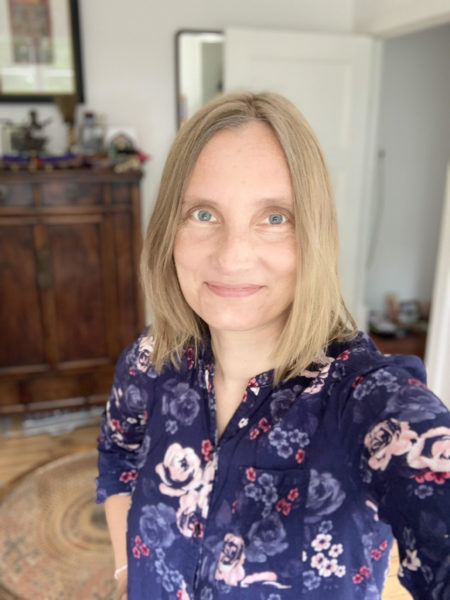
84000 Team Biography
Pema Abrahams
Communications Director
With a decade of varied experience across South and Southeast Asia as a development professional and as a cultural heritage advocate, Pema was recently awarded a major project grant by The British Library’s Endangered Archives Programme to lead a local team in preserving and making available 100,000+ pages of the history of the former Himalayan kingdom of Sikkim.
Previously, Pema had been working on systemic rights and post-conflict issues in South Asia with Human Rights Watch (New York; New Delhi); The Asia Foundation (Nepal); and International Crisis Group (London). Prior to this, in New York, she worked in the arts at the International Center of Photography, among other galleries and publications.
Pema holds an MSc Conflict Studies, specializing in International Human Rights Law, from London School of Economics; and BAs in History and Art History from NYU, where she focused on cultural shifts in Central and South Asia.
Now based in Thailand, she is on the board of the Neilson Hays Library (Bangkok), but mostly considers herself fortunate to have entered the dharma as a child under the kindness of Thinley Norbu Rinpoche – who among other things, piqued her interest in Monday night boxing and blueberry pancakes.

84000 Team Biography
Ushnisha Ng
Community Outreach Manager
In 2010, Ushnisha joined 84000, then known as the Buddhist Literary Heritage Project, and left her job in healthcare the following year to take on the full-time role of Executive Assistant. Ushnisha was involved in setting up an administrative system for the organization, and took on a range of responsibilities from events management to communications to volunteer recruitment.
Ushnisha is now the Community Outreach Manager with a focus on outreach, social media, community engagement, and production. She is based in Singapore.
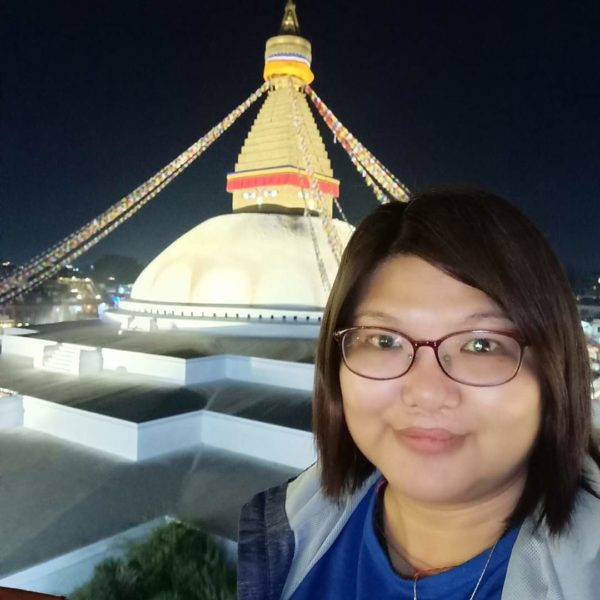
84000 Team Biography
Rafael Ortet
UX and Design Lead
Rafael Ortet was born into a family of engineers, including his grandfather, an aviation engineer but also a passionate Christian theologist—it was from him that Rafael received an appreciation for religion and scriptures. At 14, Rafael joined his father’s metallurgy firm and received intensive training in thermoplastic molding and extrusion for six years. Over two decades, he worked at B2B companies such as Dynamit Nobel and UTA (MAI division), leading many significant projects to deliver electrical and electronic systems to top automobile makers.
After changing careers in his late thirties, Rafael has dedicated more than two decades to helping Buddhist organizations and individuals produce Buddhist publications for print and digital media channels, including essential collections of scripture in several languages. He is passionate about combining kind designs and wise technologies at the highest level to assist present and future generations in accessing the full range of the Dharma. To prepare for such endeavors, he also studied for many years at Rangjung Yeshe Institute under the guidance of his teacher, Chökyi Nyima Rinpoche.
Rafael lives in Chiang Mai, Thailand, and in his spare time enjoys walking in nature, touring around South Asia, and cooking.

84000 Team Biography
Carol Tucker
Communications Editor
Carol Tucker joined 84000 as Communications Editor in March 2024. Carol has worked as a communications professional throughout her career, starting as a newspaper reporter in Los Angeles and most recently as a senior public relations specialist with the Los Angeles Department of Water and Power (LADWP), which is the largest municipal utility in the U.S. In her most recent position, she specialized in strategic communications and creating content across multiple platforms including digital, print,
and social media. She won several public relations awards on behalf of LADWP for major events and publications. She previously worked for many years at the University of Southern California, writing feature articles and pitching stories to news media to showcase faculty members’ books and research.
Carol has a Bachelor’s degree in Communications Studies from UCLA, and separate Master’s degrees in Print Journalism and Public Administration from the University of Southern California.
Since first meeting the Dharma in 2013, Carol has trained and received teachings in many Tibetan Buddhist practices under the guidance of Yongey Mingyur Rinpoche, Chokyi Nyima Rinpoche, and Tskonyi Rinpoche. She feels a deep connection with Dharma and blessed to have met such clear and kind teachers. She is thrilled to be part of the 84000, working to bring Dharma to more people throughout the world.
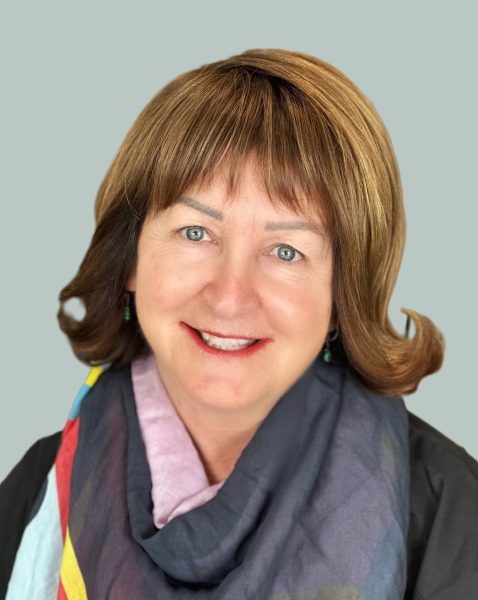
84000 Team Biography
Siyu Tian
Social Media Specialist
Born and raised in China, Siyu has ten years of corporate experience in marketing, content strategy, and social media management across a diverse range of industries in Europe, Australia, and China. With a deep understanding of the Chinese market and its consumers, since 2018 Siyu has focused on working as a bilingual branding and social media strategist with brands that align with her own values, such as Norlha and LUÜNA naturals.
Siyu holds an MA in Digital Media from Kings College London, and following her first trip to Kham during Saga Dawa 2019—marking the inception of her own spiritual journey—Siyu now spends much of each year volunteering at a monastery in Kham. There she enjoys the simplicity of life on the plateau, living with sangha and community, engaging in daily chants, delving into Buddha’s teachings, and practicing karma yoga. In her spare time, Siyu can often be spotted practicing Tibetan or chasing sunsets into the mountains.
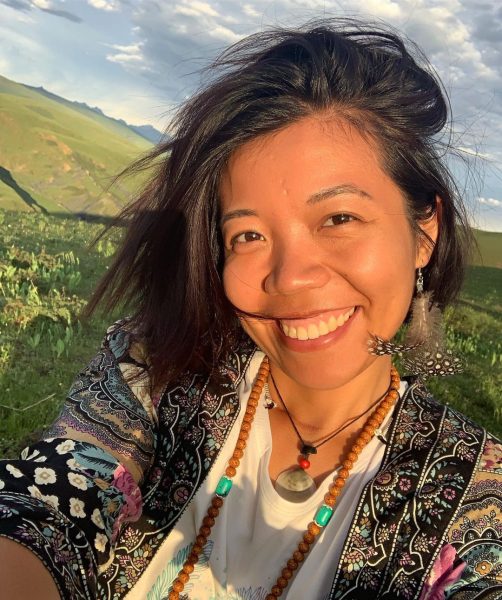
84000 Team Biography
Devlen Yeoh
Content Manager & Lead Translator
Devlen is a professional translator and interpreter specializing in Chinese-English translation for organizations including: Young Buddhist Association of Malaysia, Ka-Nying Ling KL, and TedX (Petaling Street). In addition, Devlen is the marketing assistant for Rangjung Yeshe Institute’s Chinese Programs.
Previously, Devlen acted as Chinese and Malay translator, press assistant, and Chinese media liaison for the Embassy of the United States of America in Malaysia, translating the Ambassador’s speeches and press releases; and was the technical project lead for legal publisher, LexisNexis. He is a certified Cantonese interpreter with LanguageLine Solutions US.
A film history enthusiast, Devlen has published a print biography for a veteran Chinese actress and is currently assisting some senior film historians (UC Berkeley and Peking University) with their upcoming publications.

84000 Team Biography
Cabie Sim
Associate, Communications & Development
A natural people-person, Cabie loves to serve the community and is deeply interested in preserving the natural environment. But as a teenager she began to question life and death, and in 2013 while still searching for answers, she read, What Makes You Not a Buddhist, by Khyentse Norbu. Her life was transformed, and she is now especially committed to serving the Dharma, and her guru.
Cabie began as an 84000 volunteer in 2017, becoming a team member the following year helping to represent 84000 at teaching events across Asia which she loves for the ability to help those interested become more familiar with the work and vision of the organization. She officially joined the team in June 2020.
Born and raised in Malaysia, Cabie has called Singapore home for the past twenty-four years, working initially in the beauty and fashion industries; followed by sixteen years as a curator in a fine art gallery that specializes in Modern Chinese art.
Cabie is always trying to work through her never-ending reading list of books, and loves art and traveling. But for now, much of her days are spent serving her dog and dreaming about trekking up mountains—and the summits from which she can read the sūtras aloud.

Chinese Translations Team
- Huang Jing Rui, editor
- Jain Feng, reviewer
- Joie Chen, consultant
- Qiu Hong, proofreader
- Wang Lang, advisor
- Zhang Yanjun, translator
84000 Team Biography
Huang Jing Rui
Executive Director
Huang Jing Rui has been the appointed Executive Director since 84000 began as the Buddhist Literary Heritage Project in 2009. Prior to that, Jing Rui worked in the non-profit sector as a social worker in a community-based family service center in Singapore.
In part to seek alternative answers to the ills of urban living and in part to pursue her childhood dreams, she gave up her career to volunteer in a remote village named Bir in the Indian Himalayas. It was in these hills that she, most unexpectedly, stumbled upon the opportunity to take part in 84000—a hundred-year undertaking that will last beyond her lifetime.

84000 Team Biography
Cabie Sim
Associate, Communications & Development
A natural people-person, Cabie loves to serve the community and is deeply interested in preserving the natural environment. But as a teenager she began to question life and death, and in 2013 while still searching for answers, she read, What Makes You Not a Buddhist, by Khyentse Norbu. Her life was transformed, and she is now especially committed to serving the Dharma, and her guru.
Cabie began as an 84000 volunteer in 2017, becoming a team member the following year helping to represent 84000 at teaching events across Asia which she loves for the ability to help those interested become more familiar with the work and vision of the organization. She officially joined the team in June 2020.
Born and raised in Malaysia, Cabie has called Singapore home for the past twenty-four years, working initially in the beauty and fashion industries; followed by sixteen years as a curator in a fine art gallery that specializes in Modern Chinese art.
Cabie is always trying to work through her never-ending reading list of books, and loves art and traveling. But for now, much of her days are spent serving her dog and dreaming about trekking up mountains—and the summits from which she can read the sūtras aloud.

Operations Committee
- Huang Jing Rui, Executive Director
- Ivy Ang, Board Member & Executive Committee Member
Special Projects
84000 Team Biography
Michelle Trisno
Special Projects Associate, Executive
Originally from Indonesia, Michelle is an experienced project manager. Before joining 84000, Michelle served as Chief-of-Staff to the CEO of a Singaporean home wellness product company, executing strategic plans and driving improvements to internal operations and company culture.
Greatly affected by her recent experience with Vipassana, Michelle finds her priorities in life shifting. She first came to Singapore to study Chemistry and Business at Nanyang Technological University. While there, she joined NTU’s Buddhist Society, serving as its President from 2018-19. During her tenure, she directed, nurtured, and empowered a team of 14 main committees and 45 sub-committees, identified and set the direction for how the management committee could promote Buddhism in more relatable and relevant ways, and implemented new frameworks increasing the participation rate of members and committees by 100% in weekly events.
In her free time, Michelle enjoys reading books and eating well!
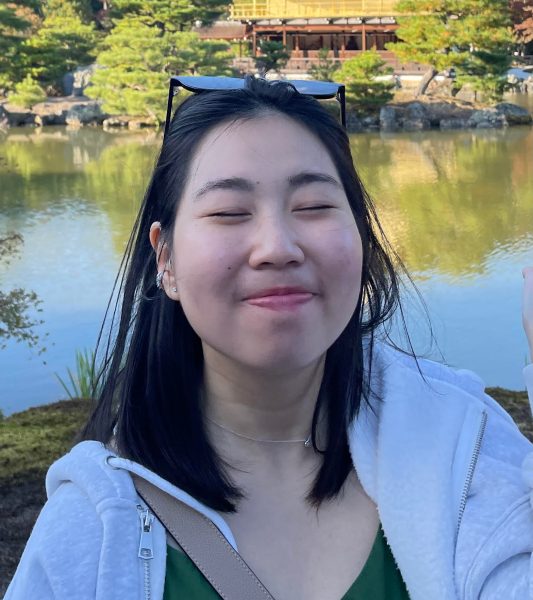
Human Resources
84000 Team Biography
Line Tofte
Editorial Manager & HR Coordinator
Line was born and grew up in Denmark but has spent a large part of her life living and working in other European countries. Her interest in different cultures and ways of life brought her to study ethnography and anthropology at the Université Nice Sophia Antipolis (France) and Aarhus University (Denmark), from where she graduated with a master’s degree in 2001.
She then worked for two decades in various types of international organizations, together with colleagues from all over the world. During this time she gained extensive experience in areas such as document management, project management, human resources, general administration and more.
In March 2020 she joined 84000 to take up the position of Editorial Manager in the Editorial team. When she is not busy keeping everyone and everything organized, she loves going for walks in the Danish countryside where she now lives.

Finance
84000 Team Biography
Marco Noailles
Treasurer
Originally from northern Minnesota, Marco graduated from Northwestern University in Evanston IL with a major in Economics. Few people know that Marco helped establish a number of food co-operatives in Wisconsin, and that over the years he has lived on various goat farms throughout the midwest and northwestern United States. Marco met Choygam Trungpa Rinpoche in 1972 and soon thereafter moved to Boulder, Colorado, where he helped with the start-up of Naropa Institute. He attended the 1975 Vajradhatu Seminary, where the second of his three sons was born.
He moved to Karme Choling in Vermont in the early 1980s, where he became the business manager and eventually the controller. Later he moved back to Chicago and worked at a CPA firm for 10 years, eventually becoming a CPA. He met Dzongsar Khyentse Rinpoche at the cremation of Trungpa Rinpoche in 1987 and became a dedicated student of Rinpoche’s in 1992. Marco now lives in Portland, Oregon, with his wife Penny and their son Mila. He is also a devoted grandpa to his granddaughter, Lucy.
Marco is an accountant in the National Payroll Services division of the Financial Services Organization of Kaiser Permanente, a nonprofit health care organization with 165,000 employees.
In addition to his role as Treasurer, Marco advises the finance team at 84000.
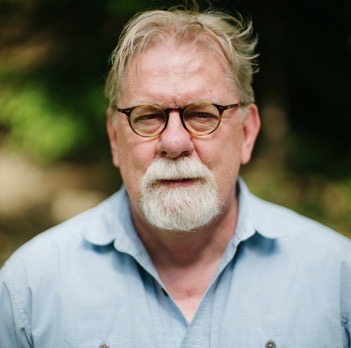
84000 Team Biography
Amy Ang
Finance Manager & Grants Coordinator
Born and raised in Malaysia, Amy first met Dzongsar Khyentse Rinpoche in Singapore in 2012 and thereafter started her journey into Tibetan Buddhism. In 2013, inspired by 84000’s mission, Amy began helping 84000 as their Grants Administrator. Her role eventually started to expand into other areas, and she is now 84000’s Finance Manager and Grants Coordinator. As a core member of the operations team, Amy manages the finances, grants, and databases for 84000.
Amy graduated with an MBA from INSEAD in France, and has ten years of professional experience in management consulting and finance, previously working as an auditor with Ernst & Young (Malaysia), and as a management consultant at Bain & Company (South East Asia). Currently, Amy is based in Malaysia and works as a corporate trainer leading workshops in leadership, strategy and emotional intelligence.
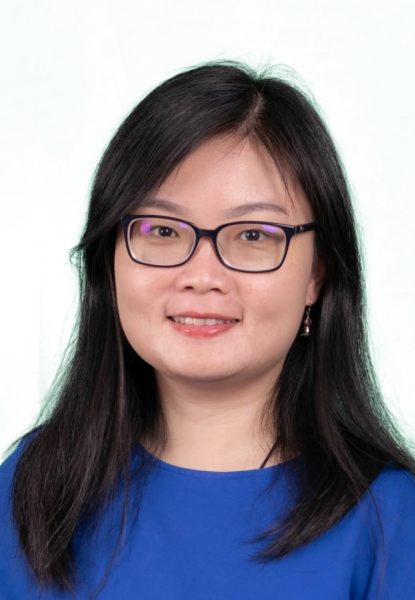
84000 Team Biography
Wu Lin
Accountant
Originally from Yunnan, China, Wu Lin graduated from Harbin Institute of Technology in 1992, and spent eight years working at the Bank of China. In 2000, Wu Lin relocated to Singapore and obtained her ACCA qualification. She now works as a chartered accountant in Singapore.
After reading some books written by Dzongsar Khyentse Rinpoche, including “What Makes You Not a Buddhist,” Wu Lin began her journey into the Buddhadharma. In 2012, she had the opportunity to meet Rinpoche and has been practicing under his guidance ever since. Wu Lin then started volunteering for 84000 in 2014, and officially joined the team in 2021.
In her own time, Wu Lin enjoys reading and sharing stories, particularly with children. Since 2022, she has been dedicating her time as a volunteer teacher at the Blue Lion Dharma Fun Club, Singapore.
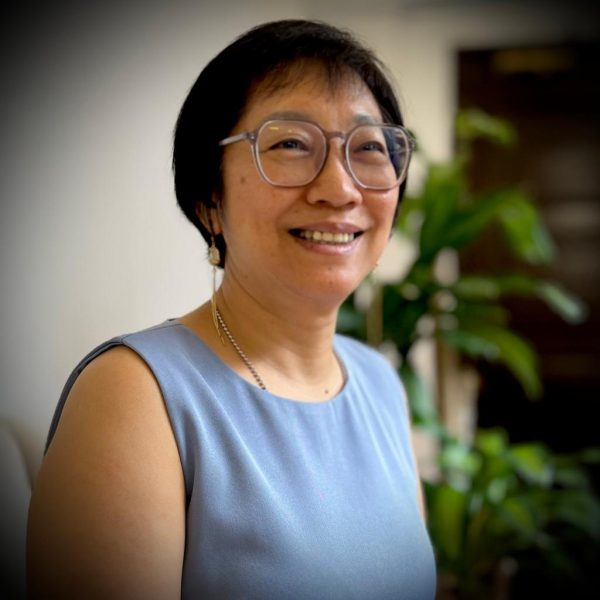
Yeo Pei Shan, Finance Assistant
Donations Management Support
- Celia Chew
- Ratna Liu
- Diana Tan
- Karen Choo
- Awing Choi
- Lizzy Tam
Regional Contact Volunteers
- Bhutan: Dellay Phuntsho, Sangay Tenzin, Tashi Tobgay
- China: Qiu Hong, Wang Lang
- Europe: Andrea Bringmann
- Hong Kong: Lizzy Tam
- India: Deepa Thakur
- Taiwan: Jain Feng
Investment Advisor
Isabel Pedrosa, Gesar Capital Management, LLC
Legal Counsel
Alexander Halpern, LLC
- Dr. James D. Gentry, 2015-2019
- Dr. Steven D. Goodman, 2009-2018
- E. Gene Smith, 2009-2010
- Dr. Tom Tillemans, 2011-2018
Our History
In March 2009, more than fifty of the world’s leading Tibetan Buddhist teachers, translators, academics and patrons gathered to discuss the Tibetan Buddhist canon and realized that 95% of it still only existed in classical Tibetan, impeding direct access for millions of people to over 230,000 pages of source texts, and inhibiting the global study and exploration of the words of the Buddha.
Recognizing that future engagement with this collection—the root from which all Himalayan Buddhist traditions originate—was in danger, the seed for 84000 was planted, with the mandate to make one of the world’s largest archives of wisdom freely and easily accessible for this generation and the next. And so began a project of all Buddhists, for all Buddhists and beyond.
This historic conference was organized by Khyentse Foundation, and held at Deer Park Institute, India. Khyentse Foundation continued to nurture 84000 into a full-fledged project, and in 2013, 84000 matured to independence as its own nonprofit (US 501c3) entity.
- View photos and video from, or read more about conference proceedings and outcomes.
- View formal letters of endorsement received by all schools of the Tibetan Buddhist tradition.
84000 owes a debt of gratitude to all our Founding Sponsors who generously provided the seed funding for this project. We acknowledge them and their contributions here, with a message from our Founding Chair, Dzongsar Khyentse Rinpoche.

